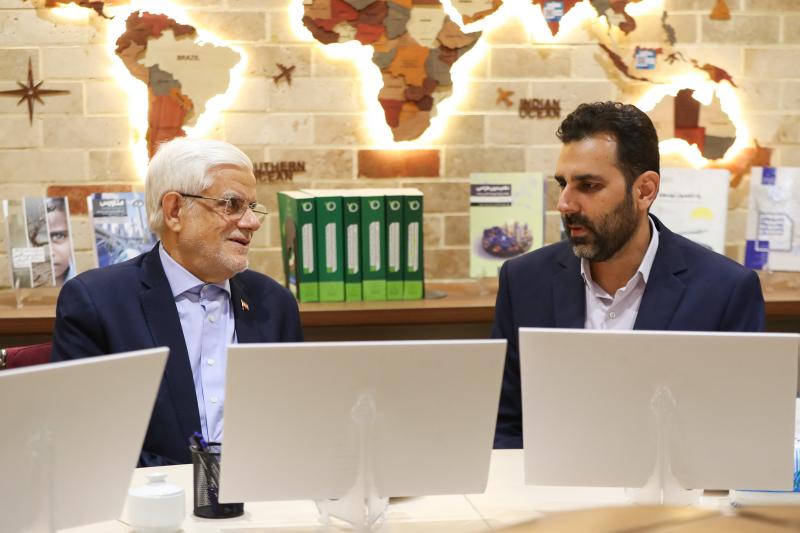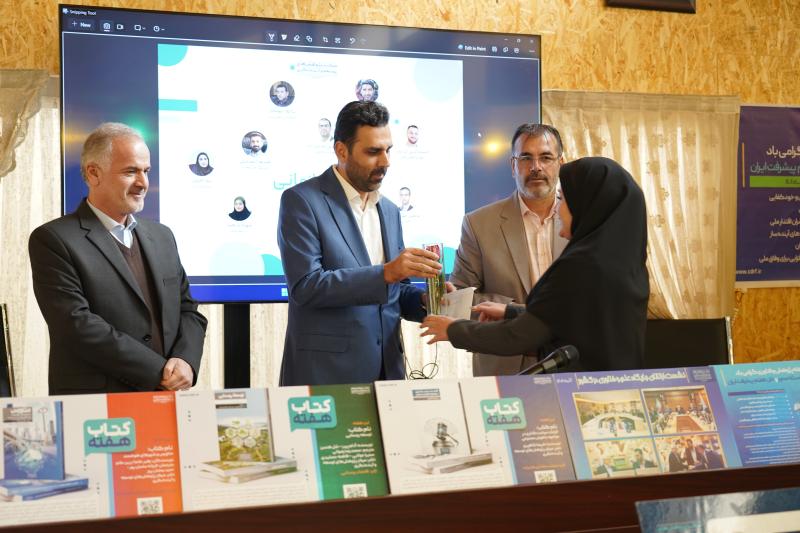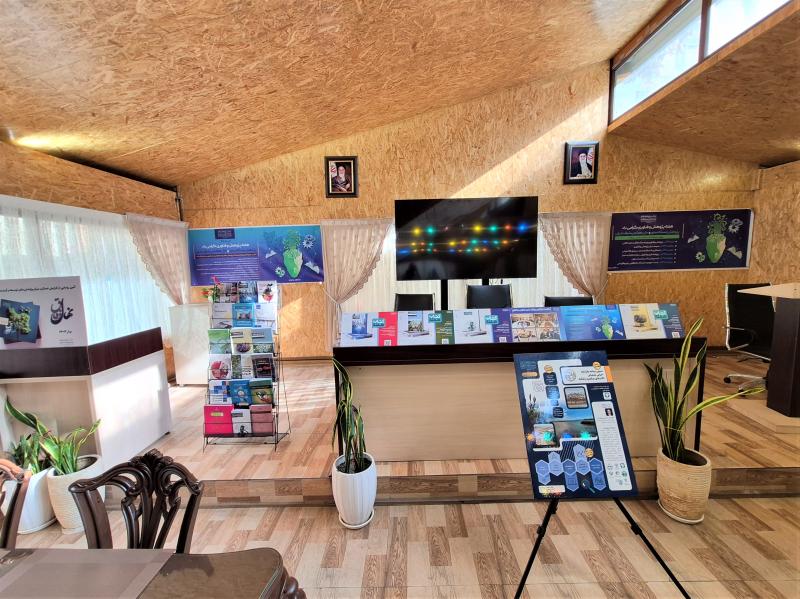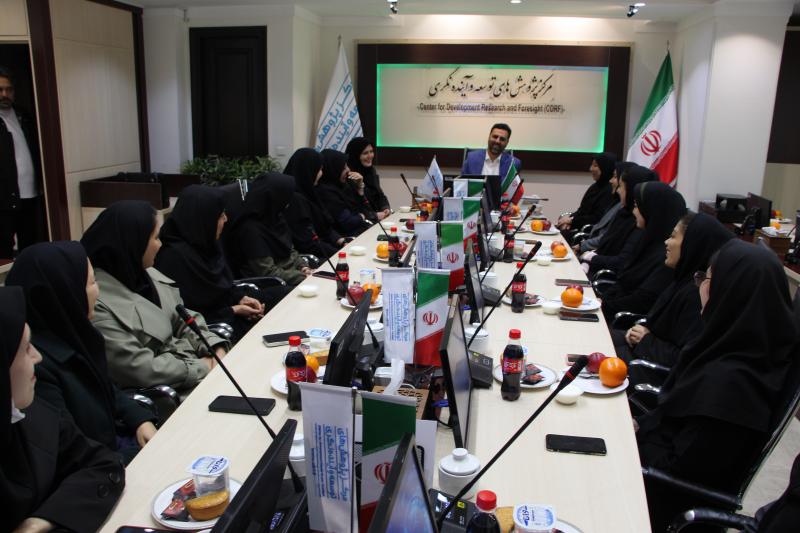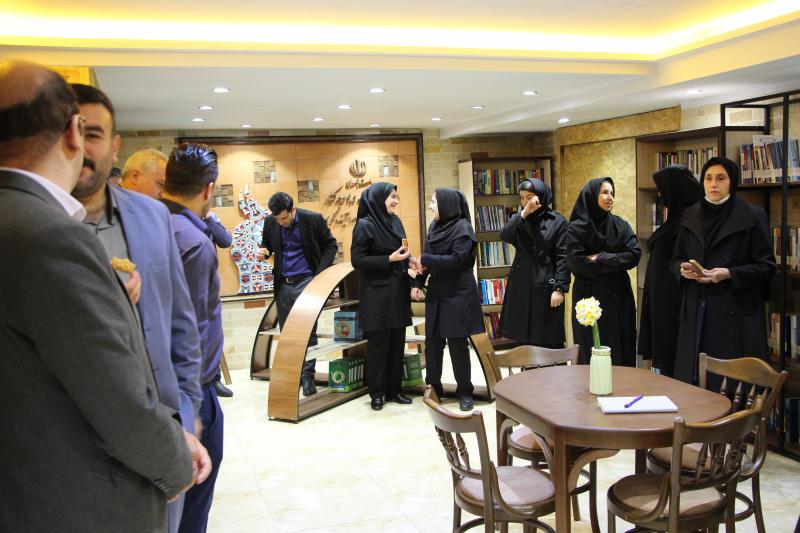
-
بررسی آییننامهها و دستورالعملهای برنامه هفتم پیشرفت
-
بررسی عوامل موثر بر افزایش تصادفات و تلفات جادهای و سوانح رانندگی و دادهکاوی تلفات انسانی
-
سازماندهی و بازآرایی فضایی آموزش عالی کشور
-
به روز رسانی سند ملی آمایش سرزمین
-
انجام مطالعات مناطق آزاد به عنوان نواحی پیشران اقتصادی کشور
-
اصلاح ساختار بودجه و پیاده سازی نظام یکپارچه مدیریت اطلاعات مالی دولت (IFMIS)
کلید واژه : Planning
تعداد اخبار : 97
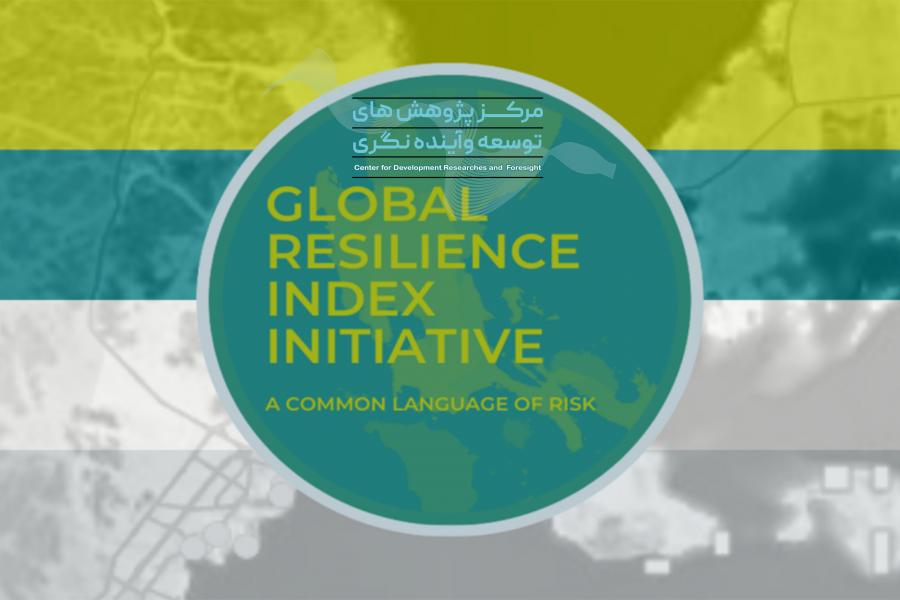
Improvement in the Islamic Republic of Iran's rank in the Global resilience index despite sanctions
According to Dr. Ali Hossein pour, the head of international relations and communications with scientific and research centers and organizations of the Center for Development Research and Foresight, one of the crucial factors for evaluating a country’s development is its rank in international development indices.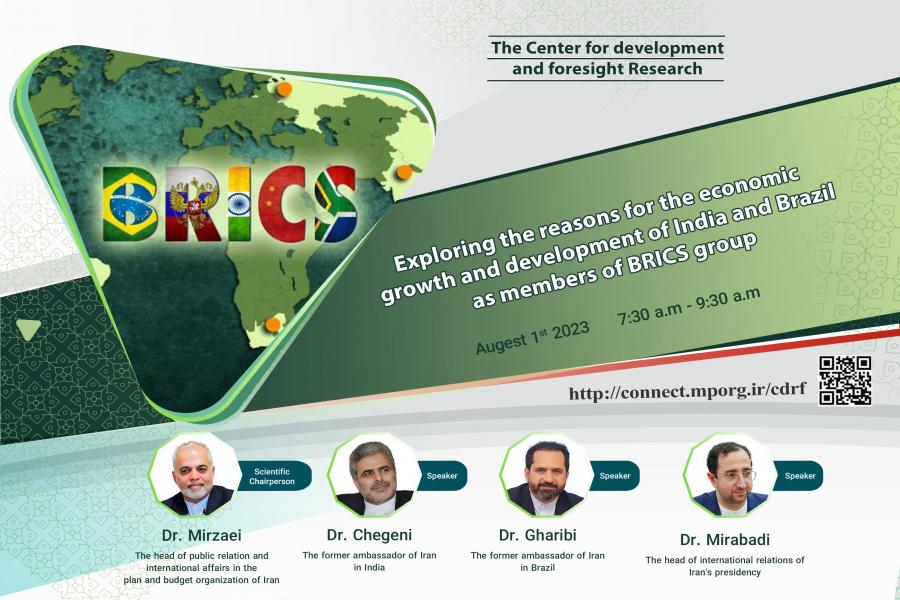
The private sector is the driving force of the BRICS countries’ economic development
The specialized conference of “Exploring the reasons for the success of the development plans of the BRICS countries; with a focus on Brazil and India” was held. It was stated that the private sector is considered as the driving force of economic development in Brazil and India. Also, it was mentioned that utilizing the economic development experience of Brazil and India would be a pivotal factor for the development of Iran’s economy.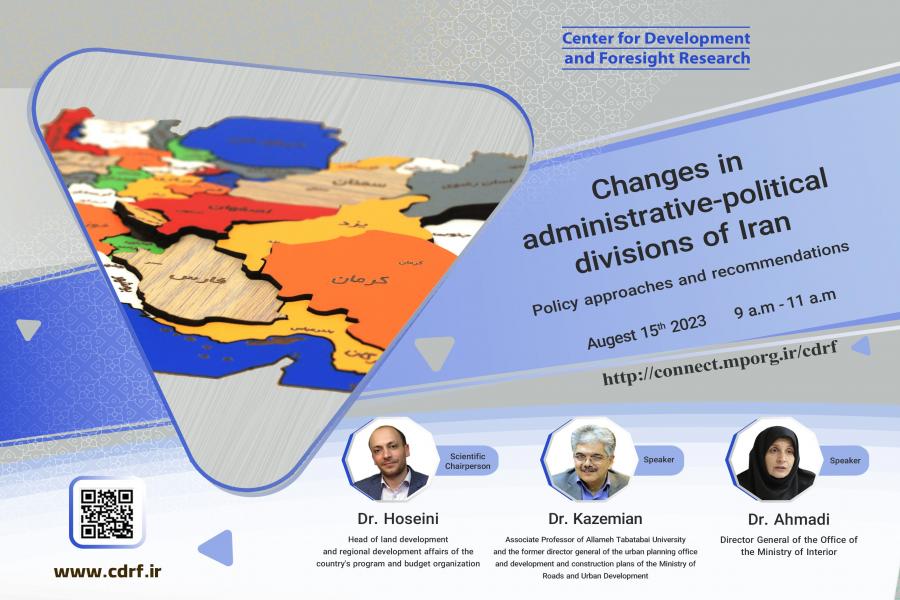
National Land Use Plan: The Key to Balanced Development and Budget Resource Allocation
The scientific-specialized conforence of "Transformations in the Administrative-Political Divisions of Iran: Approaches and Policy Recommendations" was held. .jpg)
Mass housing is the public demand from the government.
The scientific-specialized meeting entitled "Strategies for addressing the Housing Supply Crisis" was held with the presence of Mr. Rouhollah Akbari, Special Assistant to the Minister and Secretary of the Committee of Housing of the Ministry of Roads and Urban Development, as the scientific director, Dr. Mohammad Hossein Sharifzadegan, Professor at Shahid Beheshti University and former Minister of Welfare and Social Security, and Dr. Abolfazl Norouzi, Advisor to the Minister and Director General of the Housing Economy Office of the Ministry of Roads and Urban Development, as speakers.
Iran’s Golden Opportunity: Exploring New Commercial Markets in Africa
In the conference of “The Role of International Relations in Controlling Inflation and Production Growth”, it is stated that the main economic goals at the Ministry of Foreign Affairs are fostering currency inflow and boosting employment growth. The embassies have a special mission to support and market the products of 640 domestic knowledge-based companies. Special attention is given to Iran's business opportunities with neighboring countries, Latin America, Southeast Asia, and especially Africa as a priority of the Ministry of Foreign Affairs in the thirteenth government. There is a high demand for Iran's medical and pharmaceutical products in Latin America..jpg)
Agricultural Sector Achieves Significant Growth, but Challenges Remain
The scientific conference titled "The Role of Balancing Production and Consumption of Agricultural Products in Controlling Inflation" underscored the significance of food security and self-sufficiency. It emphasized the urgency to augment investment in the agricultural sector and the imperative to establish a comprehensive production chain for agricultural products..jpg)
Public-Private Partnerships in Land Development: Key Figures Discuss Pressing Issues
In the specialized conference titled "The Model of Public-Private Partnership in Land Development", it is stated that Public-Private Partnerships (PPPs) are essential for meeting the world's infrastructure needs, but face challenges such as financing, maintenance, and planning. Governments play a crucial role in PPPs by fostering a collaborative environment, building capacity, and providing transparent policy-making and necessary financial resources. In Iran, PPPs are still in their early stages, and the government needs to address challenges such as lack of interest from executive agencies and absence of a comprehensive approach.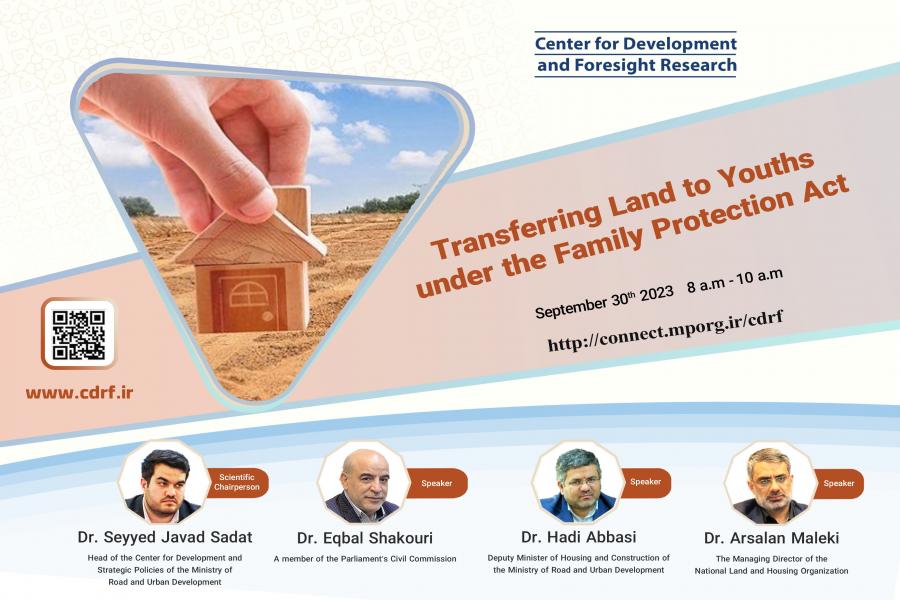
Transferring lands to youths under the Family Protection Act is a positive step in the right direction.
The conference of "Transferring Lands to Youths under the Family Protection Act: Challenges and Policy Recommendations" was held by the participation of notable figures. It is stated that the government is committed to supporting the family and youth population, and the land transfer program is a positive step in the right direction. Also, it is pointed out that it is important to ensure that the program is implemented effectively and efficiently, and that all eligible households are able to benefit from it.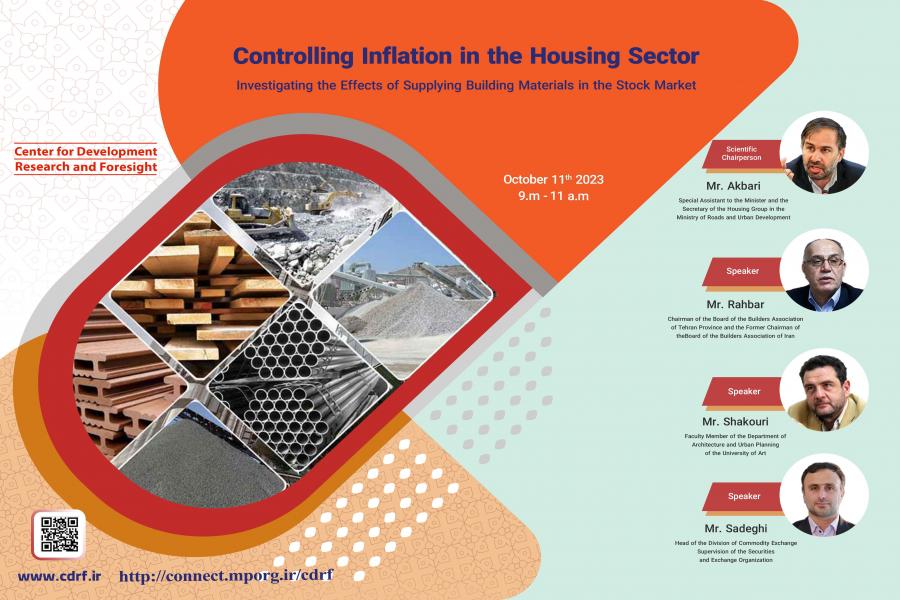
Supplying Building Materials in the Stock Market is a Matter with Controversial Perspectives.
The Center for Development and Foresight Research recently organized a specialized conference focused on addressing inflation in the housing sector, specifically examining the effects of supplying building materials in the stock market. The conference was led by Mr. Rouhollah Akbari, a special assistant to the Minister and the secretary of the housing group in the Ministry of Roads and Urban Development. Various experts from academia and industry presented their perspectives so that a comprehensive outlook can be provided to all interested in this topic.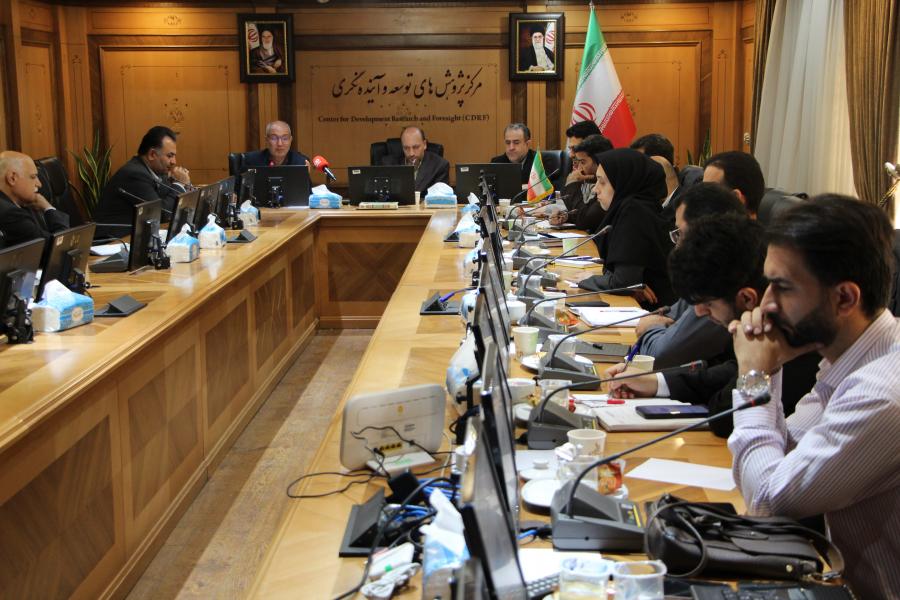
اهمیت امنیت غذایی معادل امنیت ملی است
در نشست علمی تخصصی مرکز پژوهش‌های توسعه و آینده‌نگری مطرح شد: تنش آب یکی از مهم‌ترین مسائل امروز در دنیا است، فعالیت کشاورزی مهم‌ترین نوع فعالیت در بحث آمایش سرزمین است، امروزه در جهان ازیک‌طرف با افزایش مصرف و از طرفی با کمبود منابع مواجه هستیم، امنیت غذایی در اکثر کشورهای جهان معادل امنیت ملی است، امنیت غذایی یعنی تأمین غذای سالم، کافی و مقوی برای همه افراد.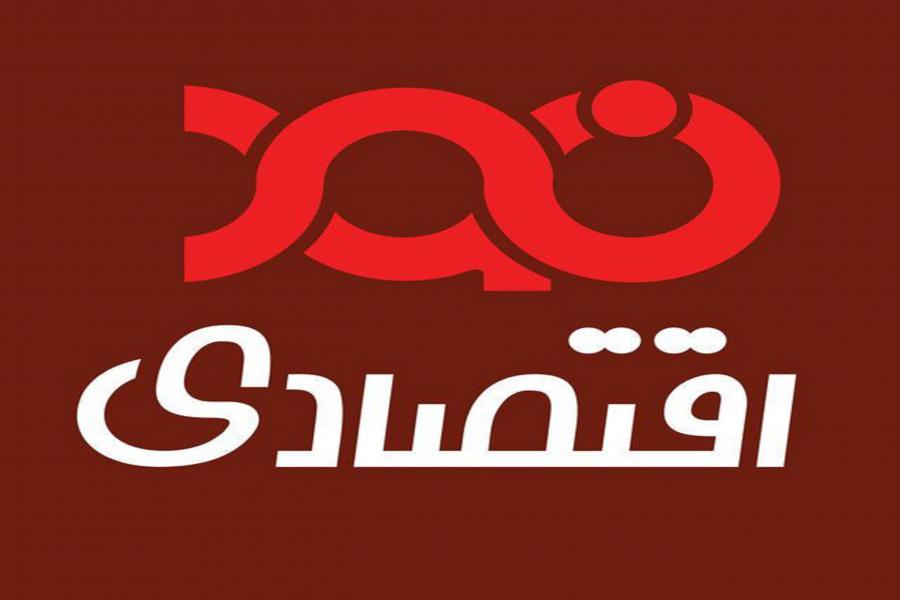
اهمیت امنیت غذایی معادل امنیت ملی است
به گزارش «نود اقتصادی» در این نشست که با عنوان "حکمرانی آمایش محور؛ سه‌گانه امنیّت آب و غذا و معیشت کشاورز" و با حضور دکتر سیّد جعفر حسینی، رئیس امور آمایش سرزمین و توسعه منطقه‌ای سازمان برنامه‌وبودجه کشور به‌عنوان مدیر علمی، دکتر اسکندر زند، استاد مؤسسه تحقیقات گیاه‌پزشکی کشور و معاون پیشین وزارت جهاد کشاورزی و دکتر آرمین توحیدی، سرپرست گروه کشاورزی، منابع طبیعی و محیط زیست دانشکده حکمرانی دانشگاه تهران به‌عنوان سخنران به ایراد نقطه‌نظرات خود پرداختند.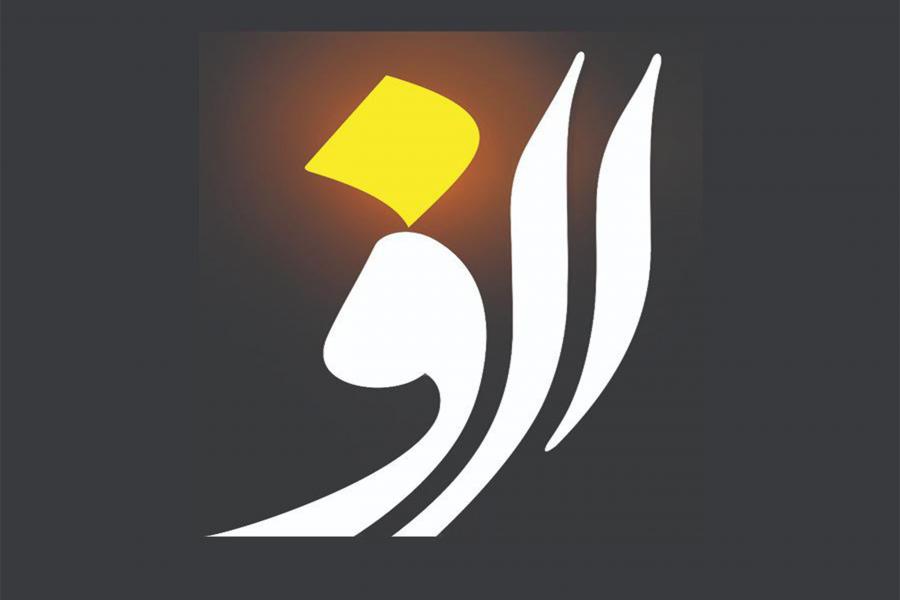
اهمیت امنیت غذایی معادل امنیت ملی است
در نشست علمی تخصصی مرکز پژوهش‌های توسعه و آینده‌نگری مطرح شد: تنش آب یکی از مهم‌ترین مسائل امروز در دنیا است، فعالیت کشاورزی مهم‌ترین نوع فعالیت در بحث آمایش سرزمین است، امروزه در جهان ازیک‌طرف با افزایش مصرف و از طرفی با کمبود منابع مواجه هستیم، امنیت غذایی در اکثر کشورهای جهان معادل امنیت ملی است، امنیت غذایی یعنی تأمین غذای سالم، کافی و مقوی برای همه افراد..jpg)
CDRF Conference Discusses Planning-oriented Governance for Water, Food, and Farmer's Livelihood Security
The Center for Development Research and Foresight (CDRF) held a conference on planning-oriented governance for water, food, and farmer's livelihood security. The conference speakers discussed the importance of agriculture in land use planning, the three pillars of food security, and global challenges to food security. They also defined land use planning and food sovereignty, and emphasized the importance of sustainable farming practices. The CDRF conference highlighted the critical role of agriculture and food security in land use planning. The speakers discussed the challenges to food security and the need for sustainable farming practices. They also emphasized the importance of empowering producers and consumers with control over the production, distribution, and consumption of food.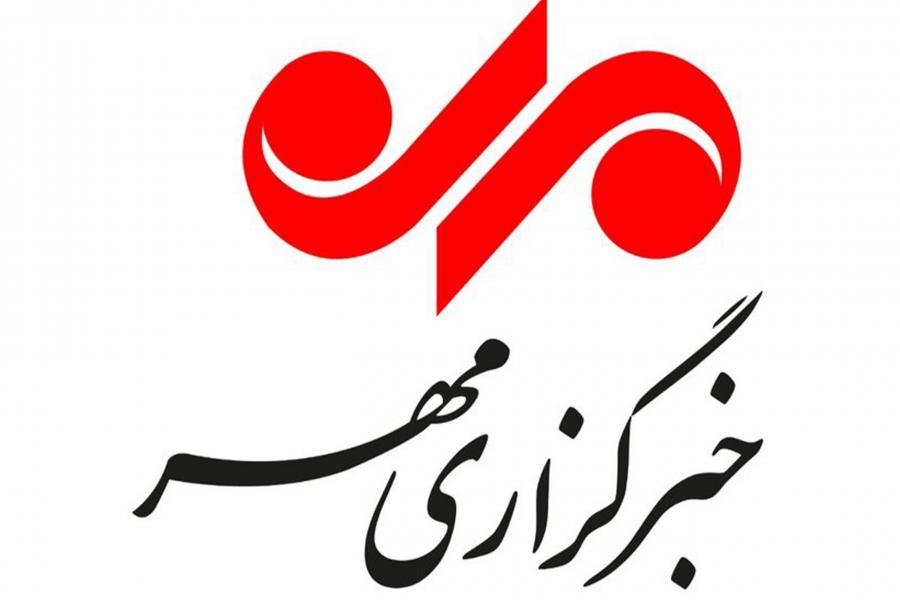
اهمیت امنیت غذایی معادل امنیت ملی است
به گزارش خبرگزاری مهر در نشست علمی تخصصی مرکز پژوهش‌های توسعه و آینده‌نگری گفته شد که تنش آب یکی از مهم‌ترین مسائل امروز در دنیا است، فعالیت کشاورزی مهم‌ترین نوع فعالیت در بحث آمایش سرزمین است، امروزه در جهان ازیک‌طرف با افزایش مصرف و از طرفی با کمبود منابع مواجه هستیم، امنیت غذایی در اکثر کشورهای جهان معادل امنیت ملی است، امنیت غذایی یعنی تأمین غذای سالم، کافی و مقوی برای همه افراد.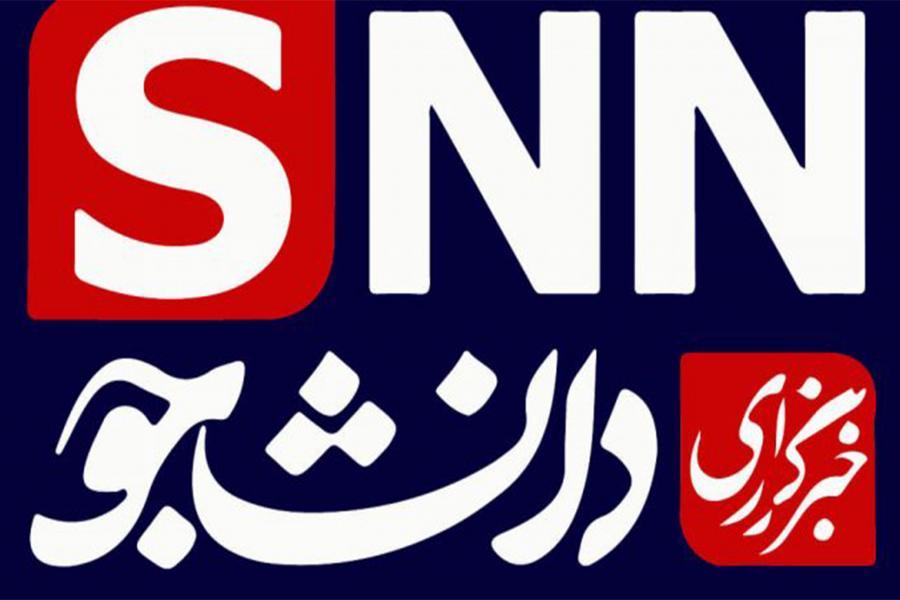
اهمیت امنیت غذایی معادل امنیت ملی است
به گزارش خبرنگار اقتصادی خبرگزاری دانشجو، در این نشست که با عنوان "حکمرانی آمایش محور؛ سه‌گانه امنیّت آب و غذا و معیشت کشاورز" و با حضور سیّد جعفر حسینی رئیس امور آمایش سرزمین و توسعه منطقه‌ای سازمان برنامه‌وبودجه کشور به‌عنوان مدیر علمی، اسکندر زند استاد مؤسسه تحقیقات گیاه‌پزشکی کشور و معاون پیشین وزارت جهاد کشاورزی و آرمین توحیدی سرپرست گروه کشاورزی، منابع طبیعی و محیط زیست دانشکده حکمرانی دانشگاه تهران به‌عنوان سخنران به ایراد نقطه‌نظرات خود پرداختند.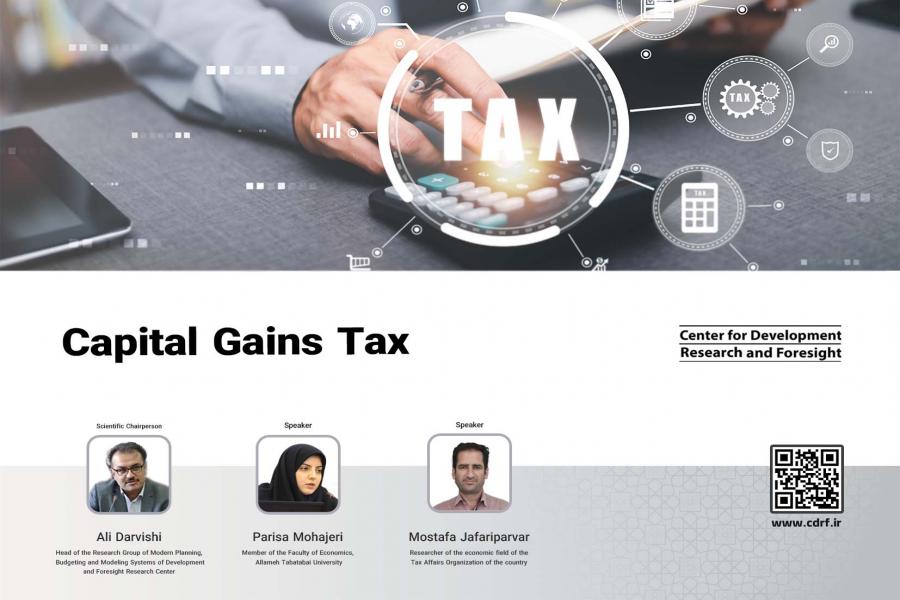
Capital Gains Tax in Iran
Iran’s 2022 budget projects tax collection to make up over 80% of the expected revenues, leading to a negative operational balance due to high government expenses. To address this, the government plans to increase tax revenues by identifying new tax bases and implementing a capital gains tax plan. However, concerns exist about the efficiency of the current tax system and the social impact of the capital gains tax law. 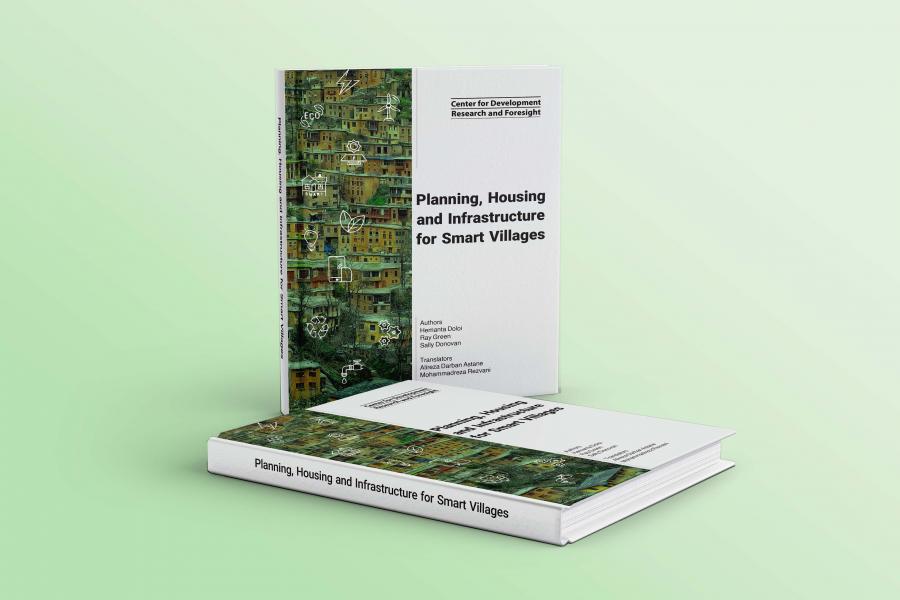
Planning, Housing and Infrastructure for Smart Villages
Planning, Housing and Infrastructure for Smart Villages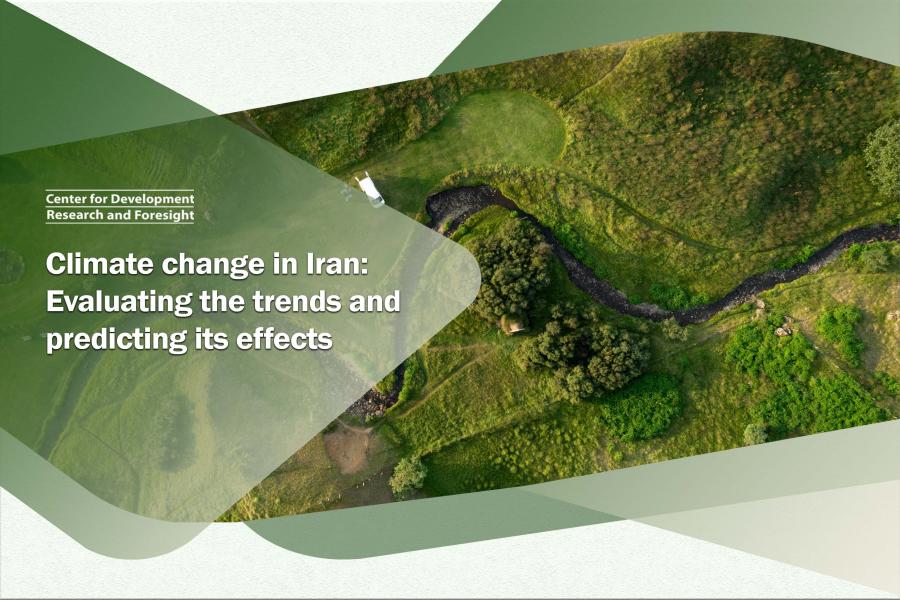
Climate change in Iran: Evaluating the trends and predicting its effects
Climate change and global warming have been one of the issues that have captured the attention of many researchers since the late twentieth century and have become the most significant challenge of the present century. The Earth's weather has been disrupted during these years, and its temperature has been increasing day by day.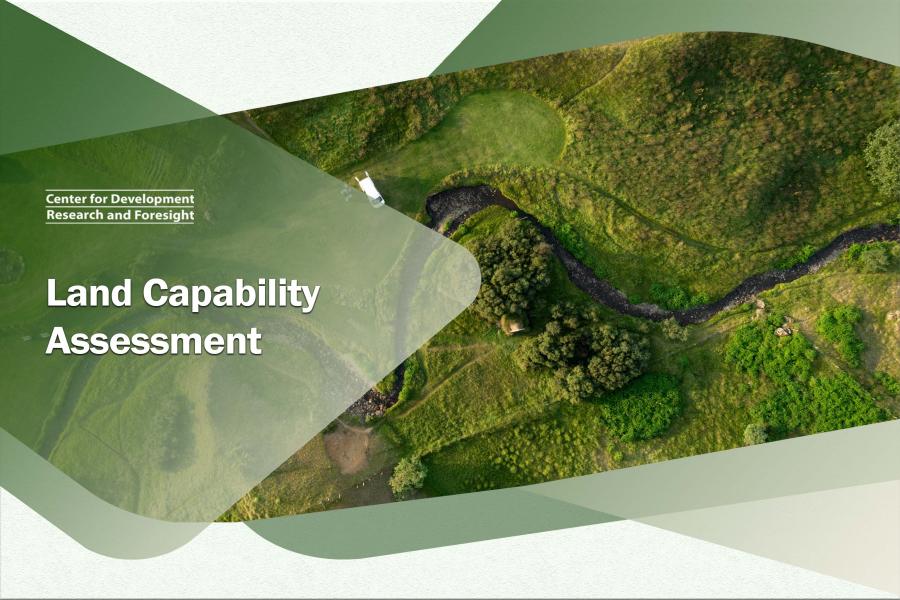
Land Capability Assessment
Environmental management is a crucial response to the crisis caused by rapid economic and social changes that affect the environment. Some of these challenges are global pollution, biodiversity loss, soil erosion, and urban sprawl. However, the pace of environmental monitoring, analysis, and planning has lagged behind the emergence of these problems.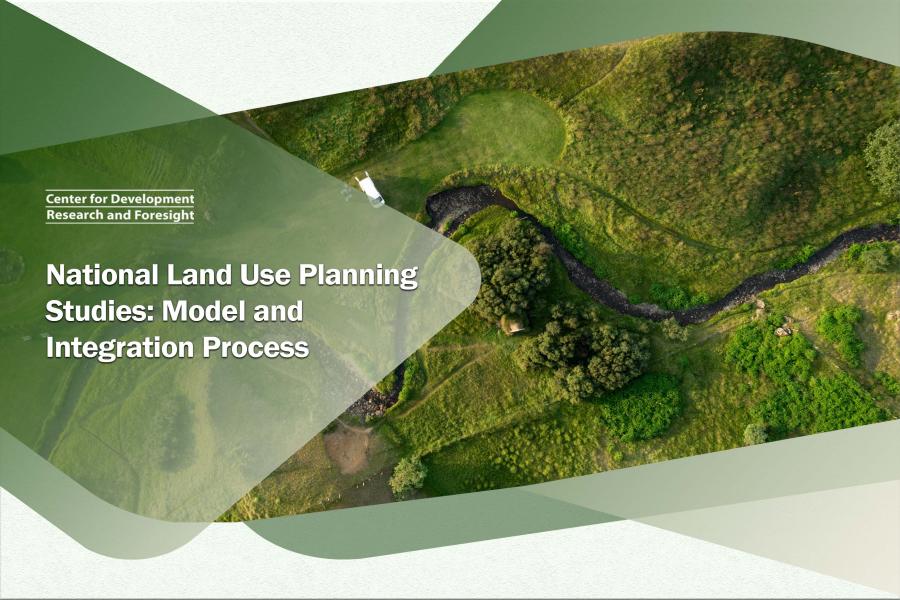
National Spatial Planning Studies: Model and Integration Process
Spatial planning is the process of designing a desirable spatial organization of activities, population, and their impacts on territory. Therefore, its main objective is to consider sectoral and regional balances and balanced land use in formulating scenarios and determining the preferred pattern of population and activity distribution.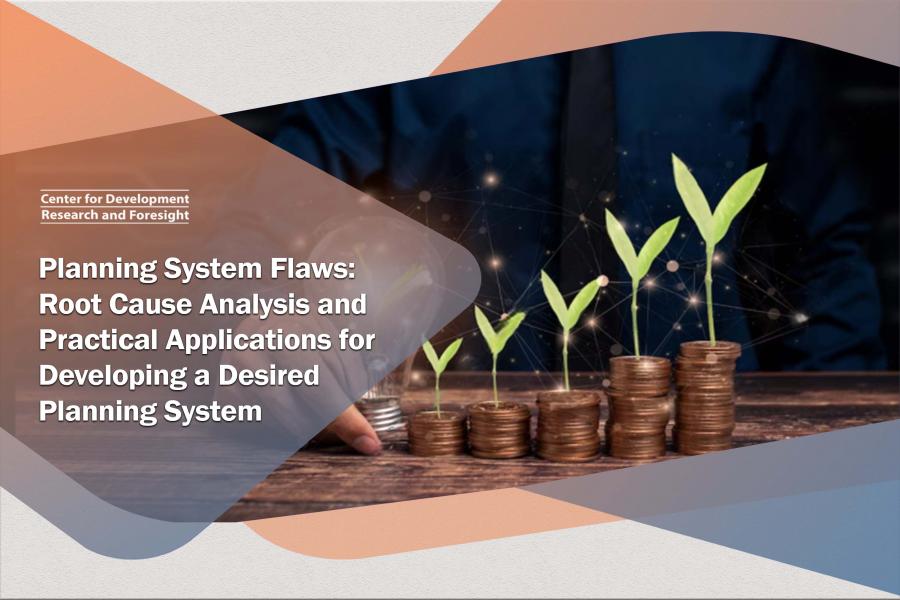
Planning System Flaws: Root Cause Analysis and Practical Application for Developing a Desired Planning System
The objective of this report is to comprehensively analyze and identify the underlying causes of deficiencies within the planning system of the country. The report examines the development programs implemented over the past 45 years, assesses the legal framework, and evaluates the objectives and performance of the planning system.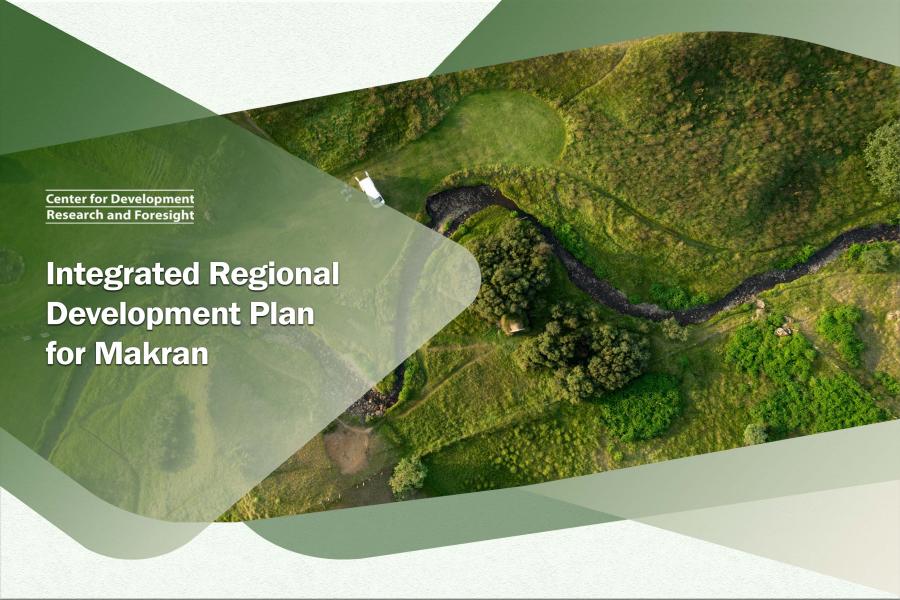
Integrated Regional Development Plan for Makran
The Makran region is one of the priorities of the country’s spatial development. Therefore, various plans and programs have been devised and implemented for this region.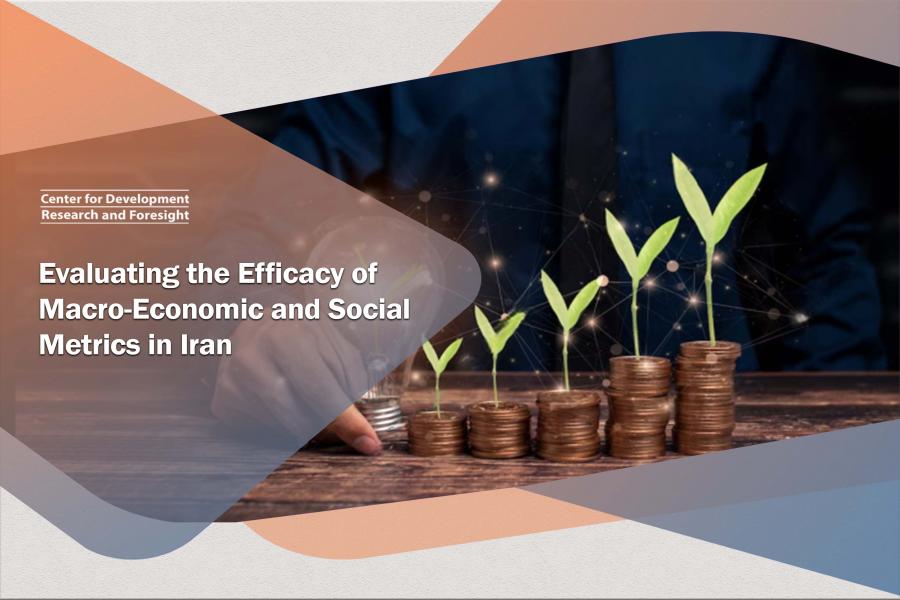
Evaluating the Efficacy of Macro-Economic and Social Metrics in Iran
The purpose of this report is to identify the root cause of the flaws in the planning system in the country. The report takes a general look at development programs in the last 45 years, assay the structure of laws, and examines the goals and performance of the planning system.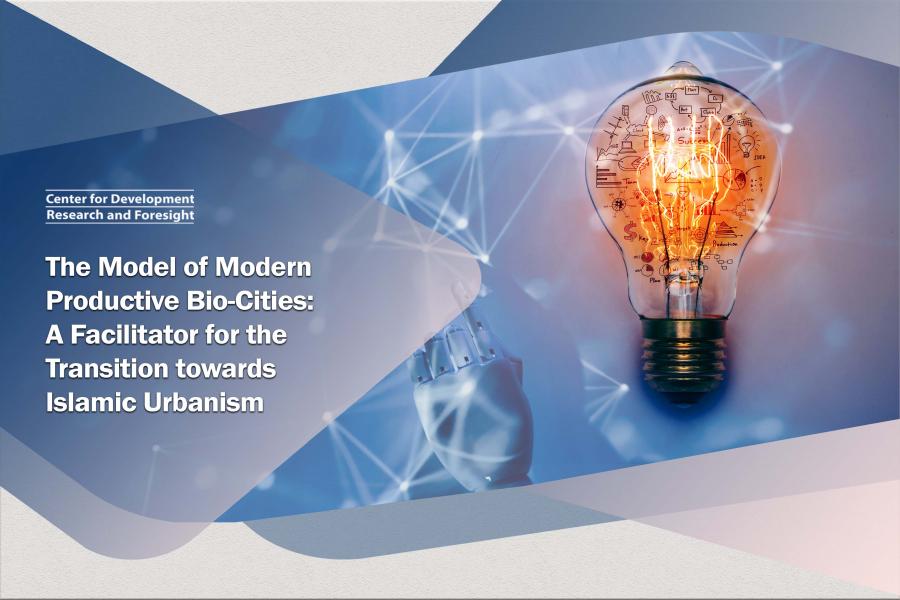
The Model of Modern Productive Bio-Cities: A Facilitator for the Transition towards Islamic Urbanism
The physical infrastructure is recognized as a crucial component of national development. The generative bio-city concept offers a synergistic approach to addressing housing, employment, population, and lifestyle challenges within a socio-cultural framework. This model aims to address pressing issues such as land scarcity and ownership, providing affordable housing, achieving regional balance in land use, and preserving intimate and harmonious spaces within homes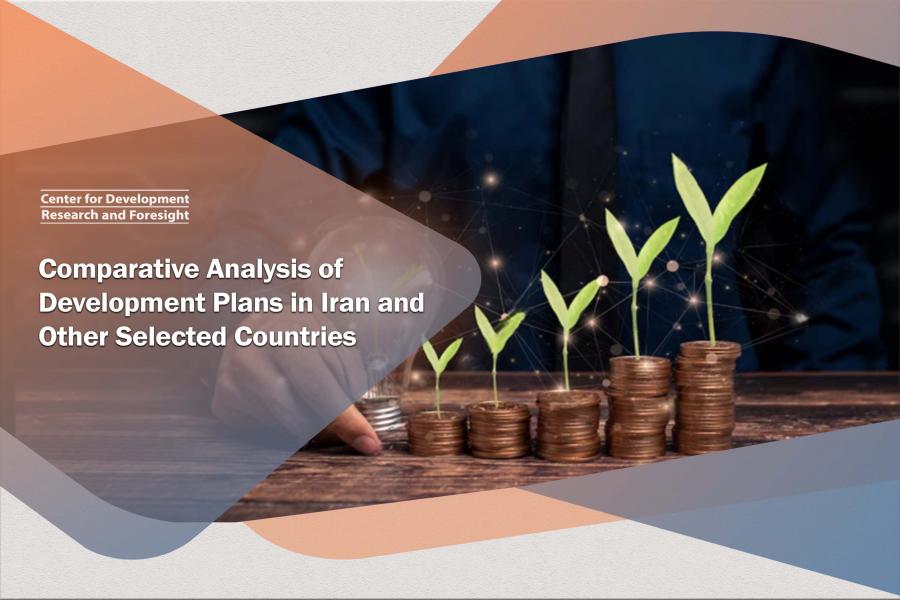
Comparative Analysis of Development Plans in Iran and Other Countries
The concept of development has been greatly influenced by the need for reconstruction and prosperity in countries involved in World War II, as well as the modernization and progress of other countries. However, development is not just about economic growth. It also includes improving income distribution, reducing poverty, expanding production capacities, and providing education, healthcare, and communication services. In essence, development aims to improve the overall quality of life and covers various aspects.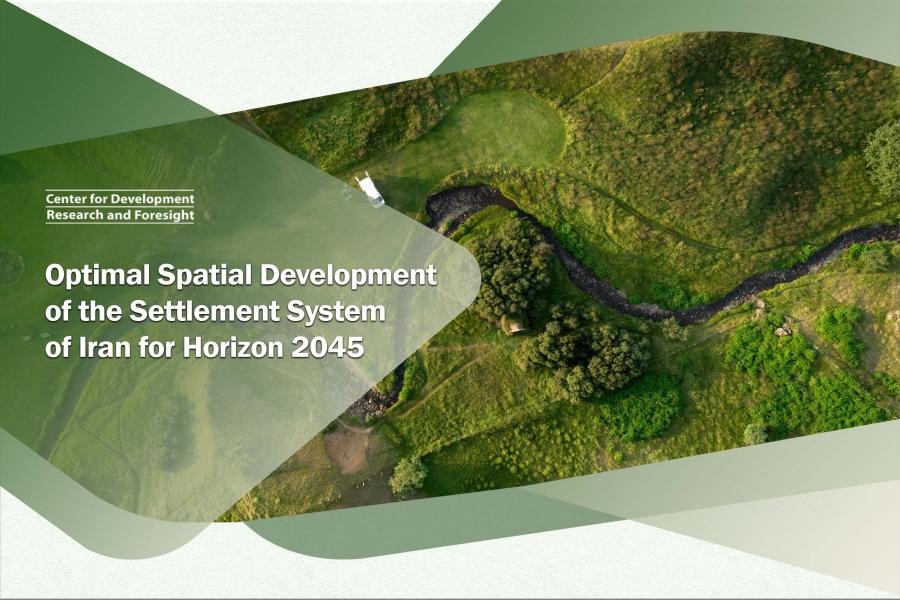
Optimal Spatial Development of the Settlement System of Iran for Horizon 2045
Space is the domain where all economic, political, social, and cultural relations of humans and the platform for all human activities are manifested and transformed. This domain is influenced and shaped by geographical, cultural, economic, and social characteristics and conditions. Throughout history, human civilizations have resulted in the formation of a specific type of space and settlement system organization of different ethnic groups and nations with diverse origins. However, these transformations, which occurred very slowly in the past, have had a very rapid and significant impact on spatial effects in recent centuries.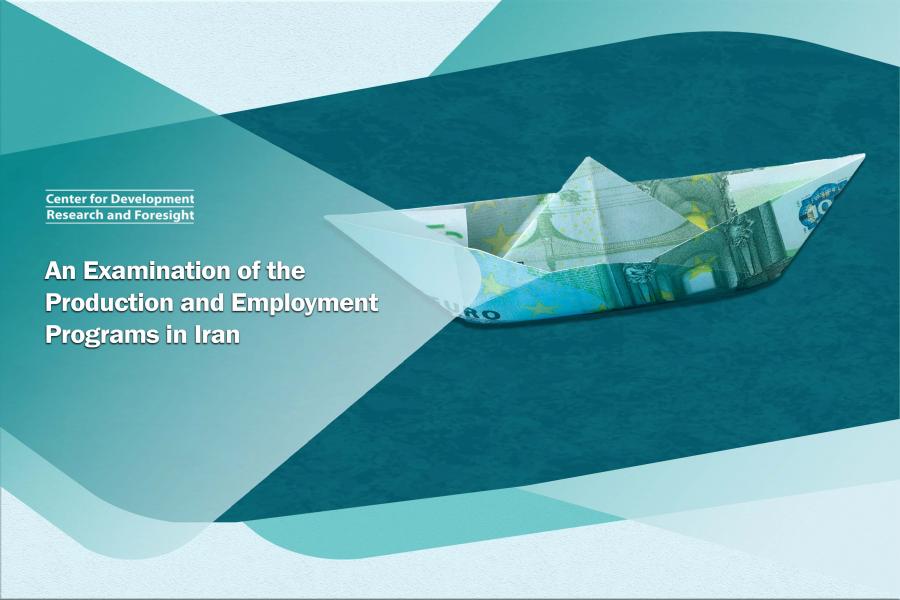
An Examination of the Production and Employment Programs in Iran
Commencing in 2016, the Iranian annual budget legislation has consistently highlighted employment support, production and employment, as articulated in Article 18. A comprehensive examination has been undertaken on the way that Article 18 has been performed within this specified duration. The examination disclosed the existence of certain deficiencies in planning.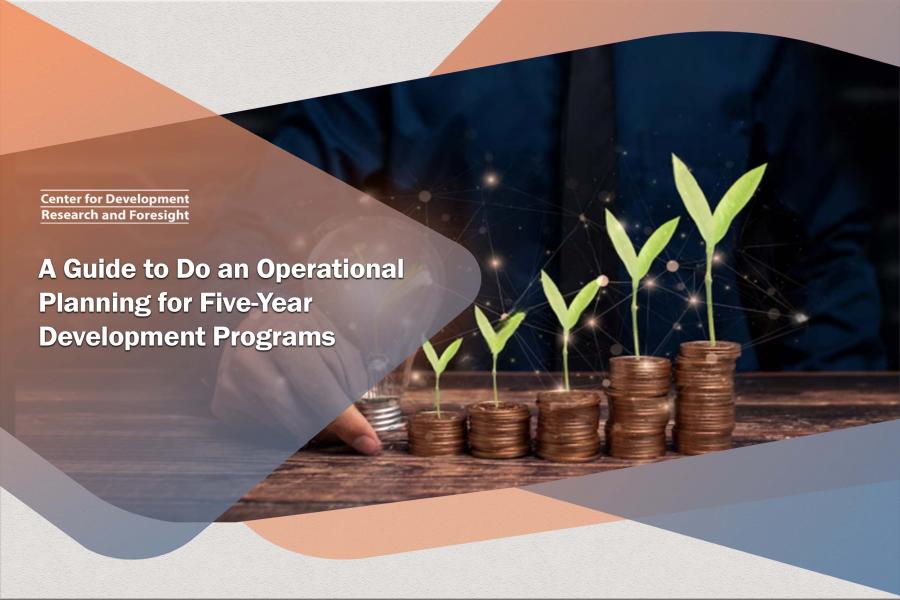
A Guide to Do an Operational Planning for Five-Year Development Programs
An action plan is a projection of actions that are needed to achieve specific goals based on the possibilities, limitations, and outlines established in strategic planning. This study aims to provide a model for developing the action plan of the country's five-year development plan to address frequent criticism in the country's development planning system.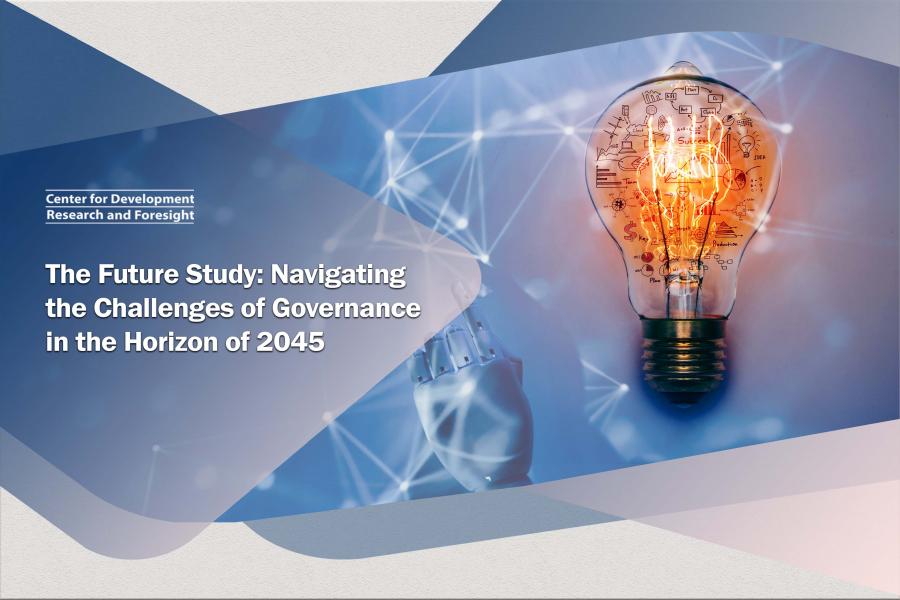
The Future Study: Navigating the Challenges of Governance in the Horizon of 2045
Spatial Planning has been characterized as a means of reclaiming land and asserting sovereignty, essentially establishing it as a category of governance and policy-making. As such, it represents a continuous evolution of governance approaches. The Spatial Planning document draws upon inputs from the political realm and public policies, culminating in a national document that serves as a public policy notification. Given that governance is the primary institution established by a society to overcome existing challenges and achieve desired outcomes, the government's utilization of the national spatial planning document fulfills a distinctly governance-oriented function. This functional affinity necessitates careful consideration of governance processes when selecting tools, including the national spatial planning document, for long-term use.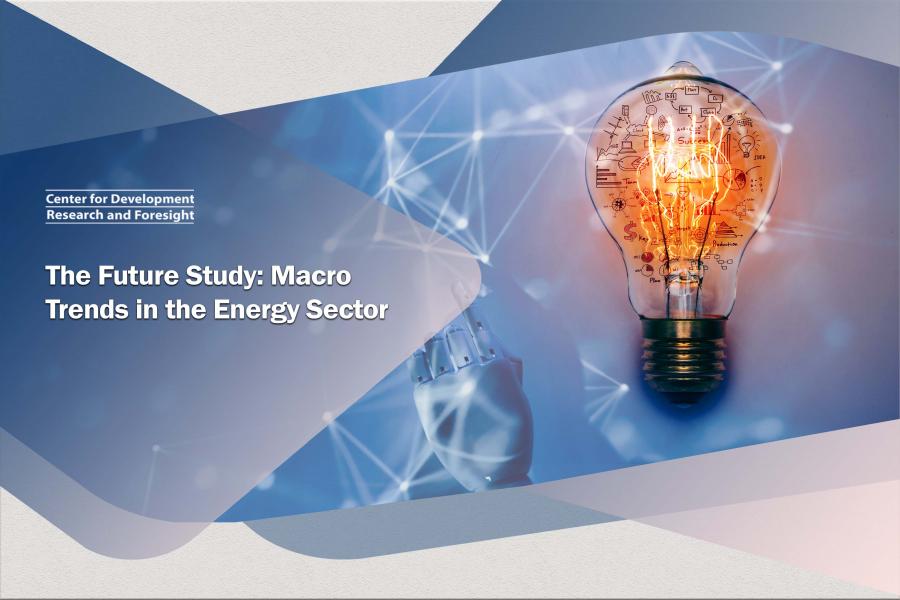
The Future Study: Macro Trends in the Energy Sector
This research delves into the energy trade landscape in global markets, with a particular focus on Iran's position within this dynamic arena. Drawing upon future studies and market analyses, the study examines the projected conditions of the global energy market, evaluating and analyzing key variables such as alternative energy sources to crude oil and natural gas, oil and gas production trends, and price fluctuations of crude oil and natural gas.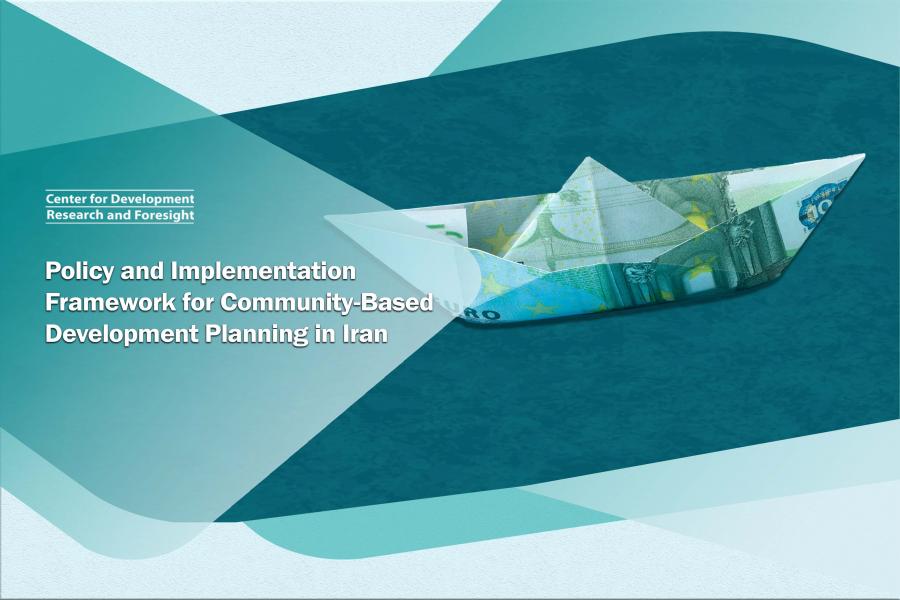
Policy and Implementation Framework for Community-Based Development Planning in Iran
This report delineates a comprehensive policy and implementation framework, specifically designed to address the institutional and functional gaps within the structure and processes of regional development programs in Iran. The primary objective is to transcend the confines of pilot projects and centralized approaches, with a concentrated focus on empowering target communities and key beneficiaries of regional development. The overarching goal is to facilitate decentralization, mitigate regional disparities, localize national development initiatives, and stimulate dynamic grassroots participation.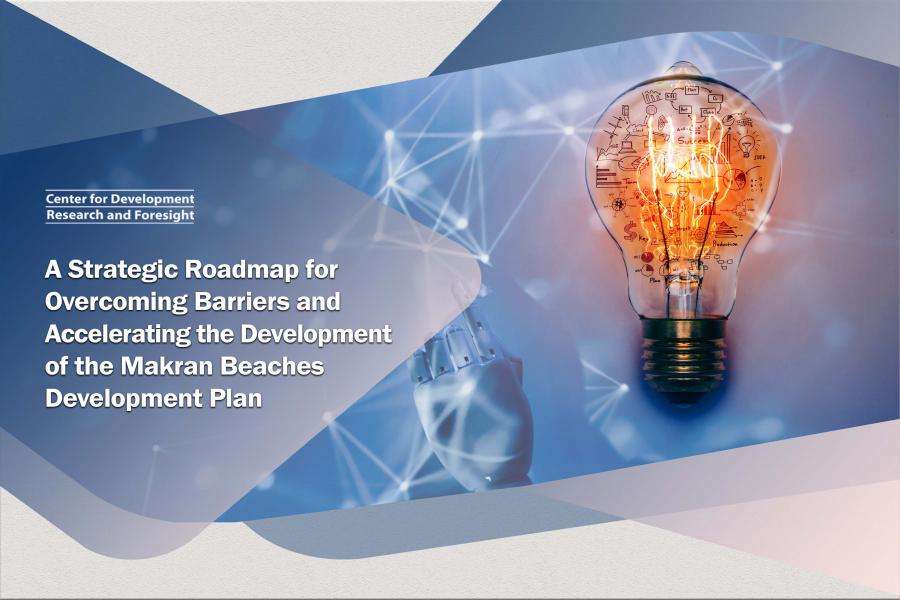
A Strategic Roadmap for Overcoming Barriers and Accelerating the Development of the Makran Beaches Development Plan
The strategic importance of the Makran coast is undeniable, yet its development remains disproportionately low. This disparity is attributed to a combination of internal and external factors, which are analyzed in this research.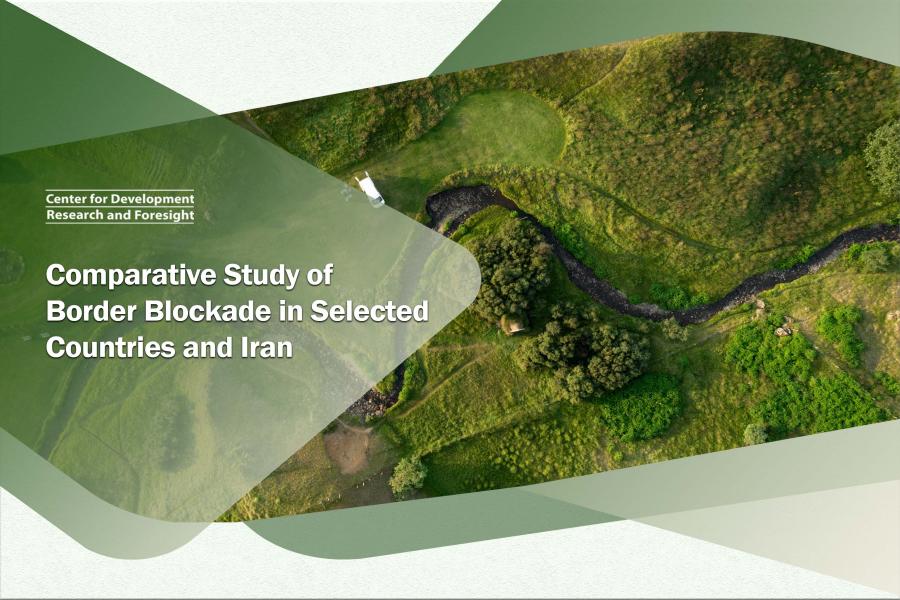
Comparative Study of Border Blockade in Selected Countries and Iran
Managing borders effectively is crucial for many countries, including Iran, which shares land and sea borders with fifteen neighboring countries. Iran's extensive border network makes it one of the most interconnected nations. Half of Iran's provinces are border regions, each with its own distinctive characteristics. Various theories seek to explain the complex relationship between security and development. Some theories advocate for a unified approach, emphasizing the complementary nature of security and development. Conversely, other theories prioritize one over the other, viewing them as separate concepts.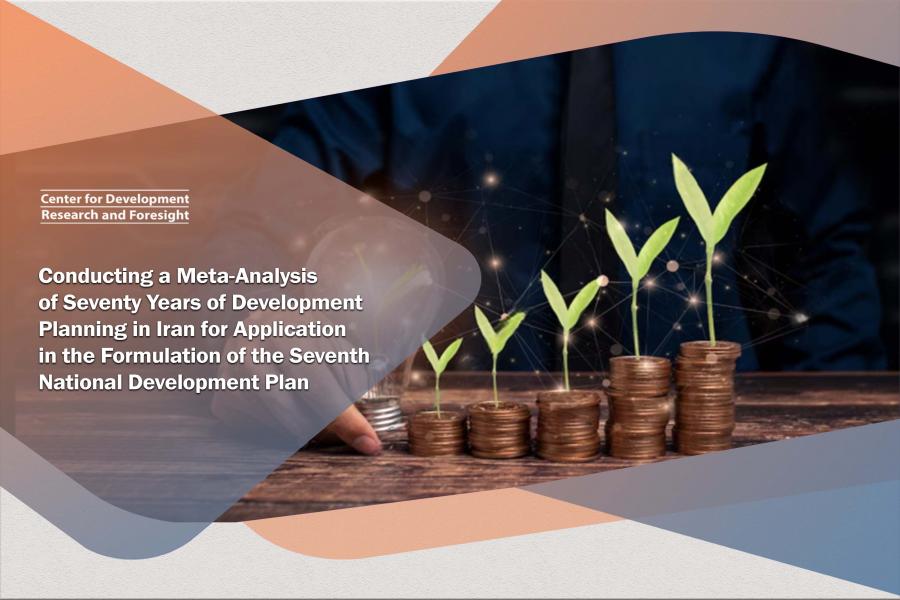
Conducting a Meta-Analysis of Seventy Years of Development Planning in Iran for Application in the Formulation of the Seventh National Development Plan
The development plan in Iran has been shaped by the evolution of the plan itself, following an established planning procedure. A crucial factor for successful planning is the establishment of a shared understanding and consensus on regulations, which serve as a blueprint for the content and structure of the plan among policymakers and planners. Given the importance of this issue, and recognizing that the formulation of regulations will be a pivotal step in advancing the seventh development plan, this study aims to delineate and clarify the regulatory elements of this plan.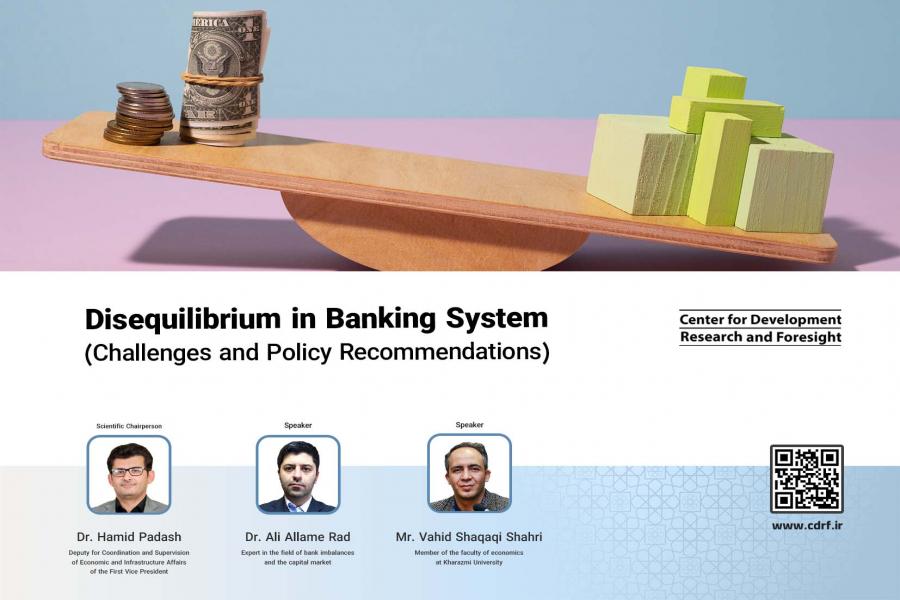
Disequilibrium in Banking System: Challenges and Policy Recommendations
The banking sector's disequilibrium has emerged as a pervasive and enduring challenge within the nation's macroeconomic framework. A series of strategic missteps have plagued the banking sector over the preceding four decades, including: the absence of unified Central Bank oversight from the late 1960s until 1994, despite formal recognition (substantive supervision remained deficient), the premature privatization of the banking industry without adequate national economic preparation, the imposition of government expenditures on private and non-governmental banks, particularly to offset a portion of the budget deficit, the perpetuation of a traditional view of money as a private commodity (a primary factor exacerbating domestic inflation), and vacillation between disparate economic schools, shifting from socialist to capitalist ideologies.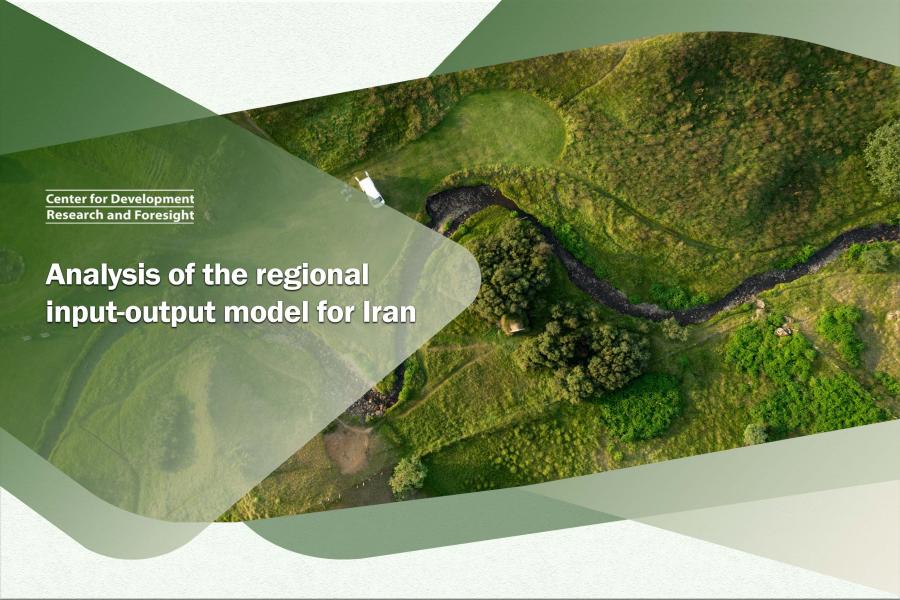
Analysis of the regional input-output model for Iran
In the contemporary global landscape, the evolution of planning systems has instigated a widespread transition towards decentralization and regional planning, predicated on the unique capabilities and advantages inherent to each region. This necessitates the execution of regional analyses employing a diverse array of methodologies. The input-output model has emerged as a prevalent method in regional planning. As one of the most sophisticated techniques in economic accounting, the regional input-output model elucidates the pattern of interaction among economic activities within or across various regions.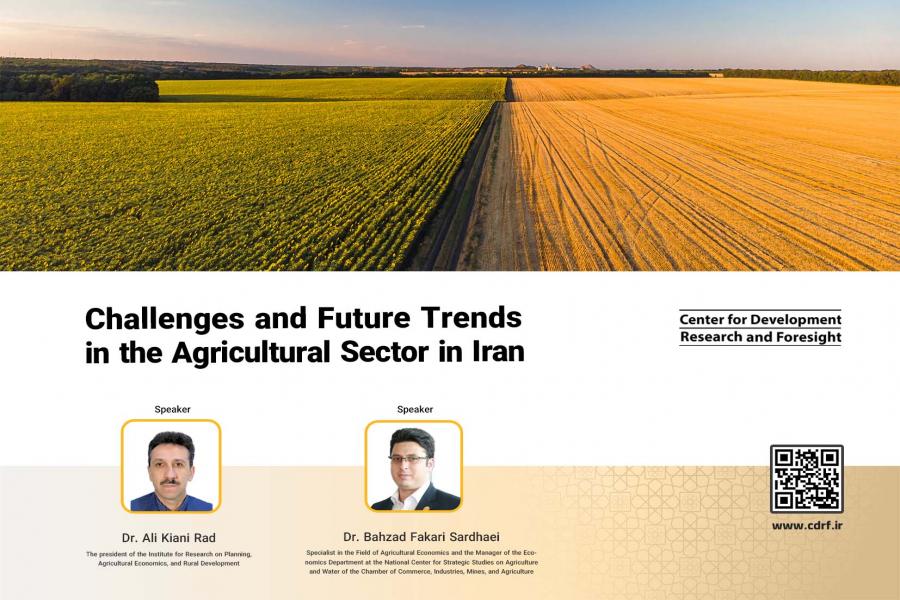
Challenges and Future Trends in the Agricultural Sector in Iran
Agriculture plays a critical role in Iran's economy, providing employment for over 15% of the workforce. While the sector holds immense potential for growth and development, it also faces significant challenges. Identifying these challenges and their impact on the agricultural system is essential for policymakers and stakeholders to formulate effective and targeted policies that address both current and potential issues, thereby enhancing the sector's resilience and enabling it to achieve sustainable development goals.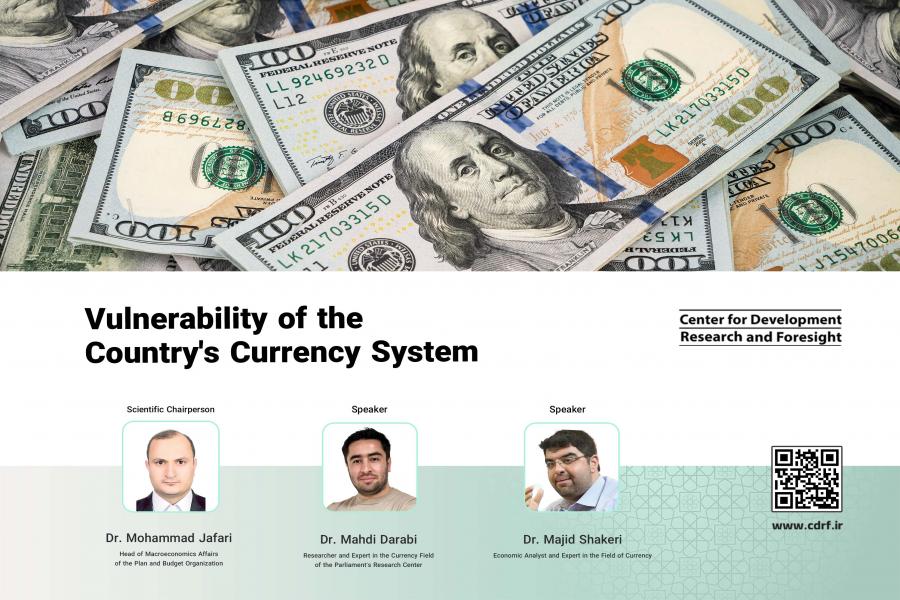
A Review of the Country's Foreign Exchange System: Identifying Vulnerabilities, Addressing Challenges, and Formulating Effective Policy Recommendations.
Exchange rates, as critical macroeconomic indicators, play a pivotal role in assessing a nation's economic resilience in the face of diverse shocks and uncertainties. Guided by their unique economic and political landscapes, as well as their status as oil exporters or importers, countries adopt specific currency regimes, each with its distinct set of requirements and constraints. An oil-exporting nation's economic priorities and strategies may diverge significantly from those of an oil-importing nation.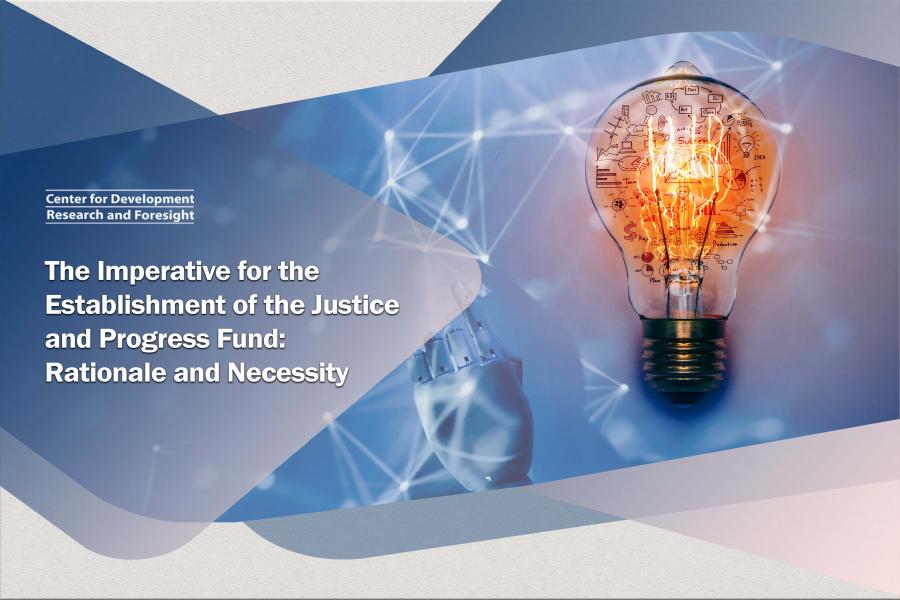
The Imperative for the Establishment of the Justice and Progress Fund: Rationale and Necessity
The Center for Development Research and Foresight, commissioned by the Country's Program and Budget Organization's Directorate, has embarked on a study titled "Progress and Justice Fund." This research seeks to evaluate the proposed scenarios for establishing the country's growth and development funds. Drawing upon the experiences of the Omid Entrepreneurship Fund's SWOT analysis, this study aims to provide insights into the formation of national growth and development funds. The primary objective of this research is to identify the dimensions, strengths, opportunities, potential bottlenecks, and challenges associated with the Progress and Justice Fund, while also proposing solutions for its implementation.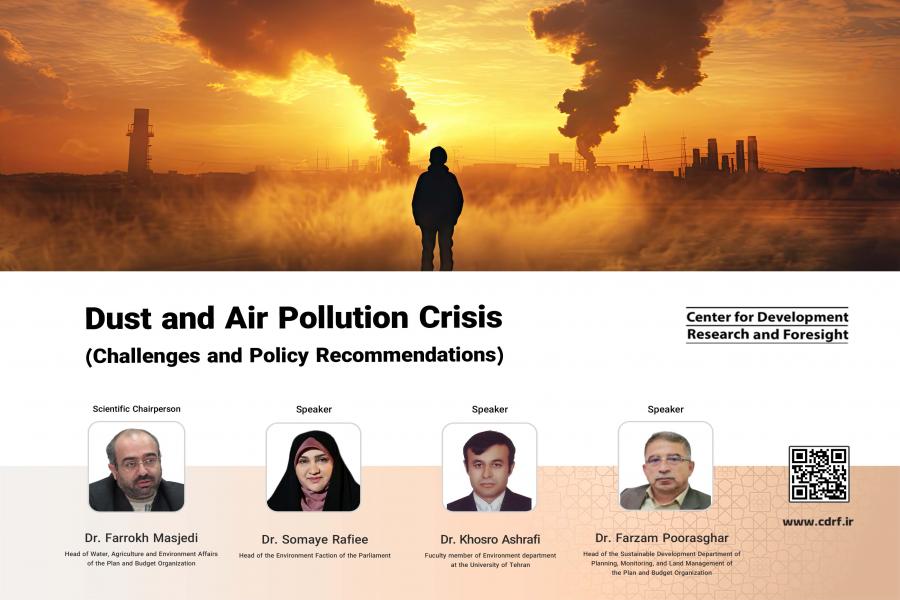
Dust and Air Pollution Crisis
The phenomenon of airborne dust particles as pollutants has detrimental implications for regions exposed to it. The challenges posed by dust and sandstorms are manifold, including weak environmental diplomacy in addressing transboundary environmental risks, overlapping responsibilities of government agencies, the growth of domestic dust emission sources influenced by deficiencies in water resource management, a lack of understanding of the interconnectedness of gradual disasters such as drought, desertification, land degradation, and dust storms, and the adoption of reactive rather than proactive approaches.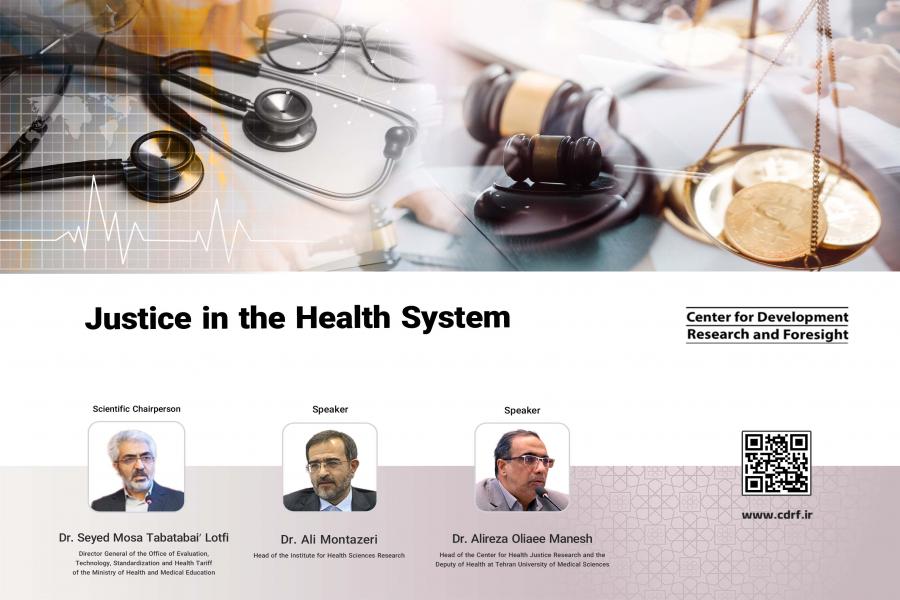
Justice in the Healthcare System
In the realm of healthcare, justice signifies equal access to healthcare services for all individuals. Key indicators for evaluating justice in health include justice in distribution, payment, access, and financial provision. Health equality entails implementing policies and allocating resources in a manner that individuals with fewer resources and those facing deprivation and discrimination (due to factors such as race, gender, age, disability, or income) experience significant improvements in their health and quality of life.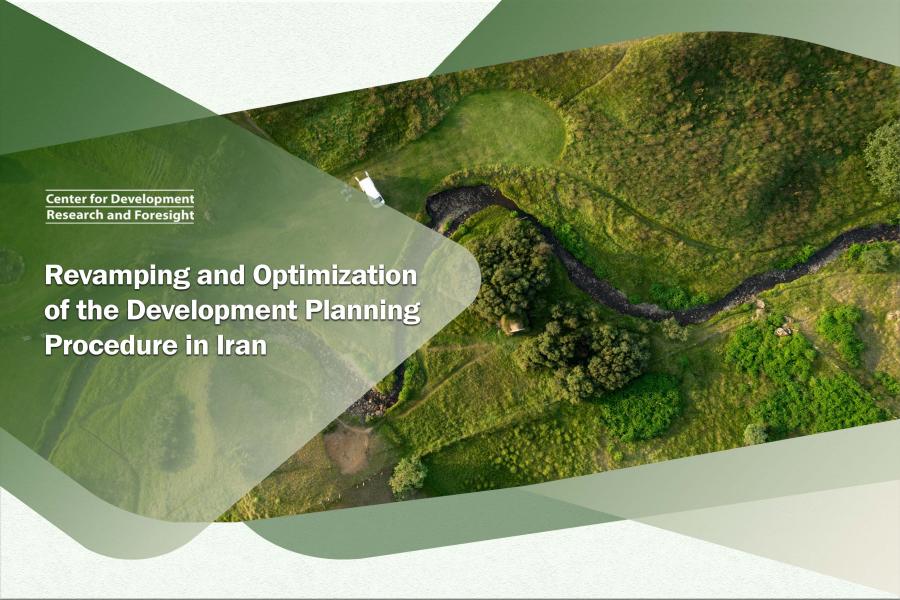
Revamping and Optimization of the Development Planning Procedure in Iran
An evaluation of Iran’s development programs across various periods reveals that most have not achieved the desired outcomes, with some exhibiting a significant performance gap relative to their stated goals. In certain instances, the substantial discrepancy between performance and objectives underscores the failure of planning within the country. Consequently, the shortcomings of planning in Iran have piqued the interest of numerous scholars and academics. The findings of these studies suggest that some plan failures can be attributed to structural deficiencies in the country’s planning system, while others are related to the political and economic issues that govern the formulation and implementation of the plan. In response to these shortcomings, proposals have been put forth to enhance programs within the country. These enhancements include utilizing key cores, rolling planning, or eliminating medium-term plans and focusing on aligning one-year plans with long-term plans.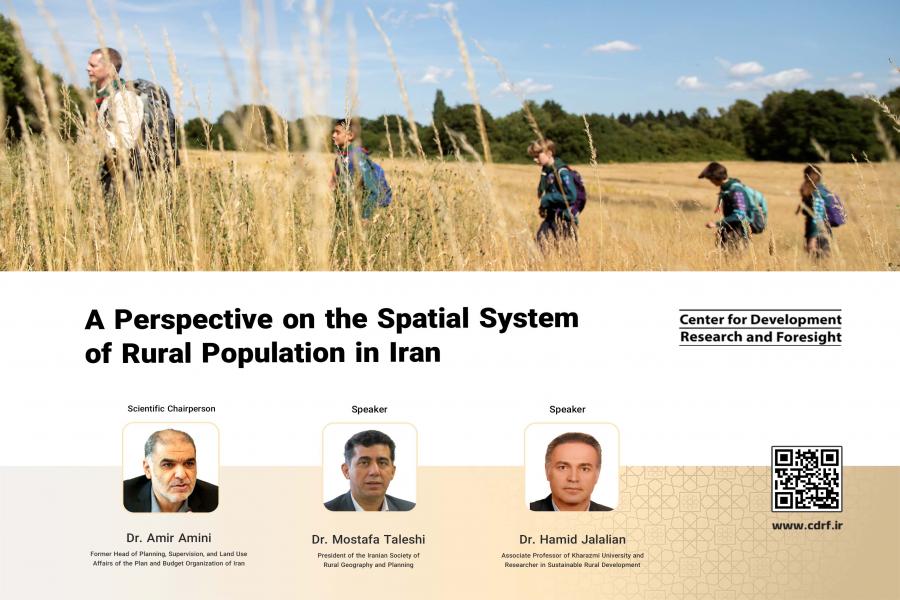
Exploring the Spatial Structure and Characteristics of Rural Population in the Country
Given the significance of the subject and the rural microsystem's role in shaping Iran's broader land area macro-ecosystem, an initial assessment of rural areas based on selected macro-social, economic, physical, and institutional indicators reveals that this microsystem faces obstacles in fulfilling its intended role in the national development landscape. These challenges have negatively impacted the rural system's vitality due to their cascading effects.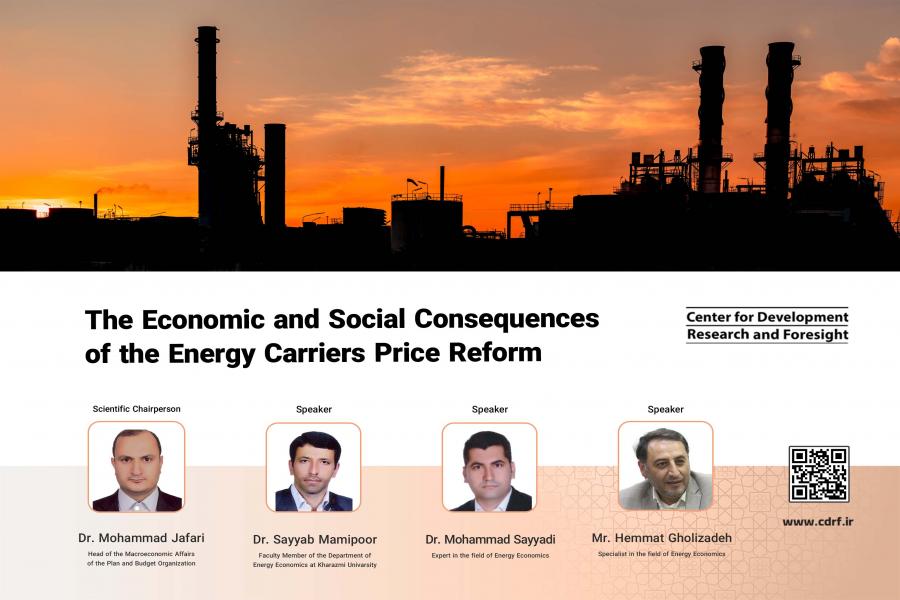
The Economic and Social Consequences of the Energy Carriers Price Reform
Given the significant role of energy in Iran’s economy, the pricing of energy carriers, particularly gasoline, has always been a critical factor in the implementation of government policies and the overall economy of Iran. The Energy Subsidy Reform policy and the appropriate pricing method have consistently posed challenges, with various governments grappling with economic, social, and environmental challenges in gasoline price reforms.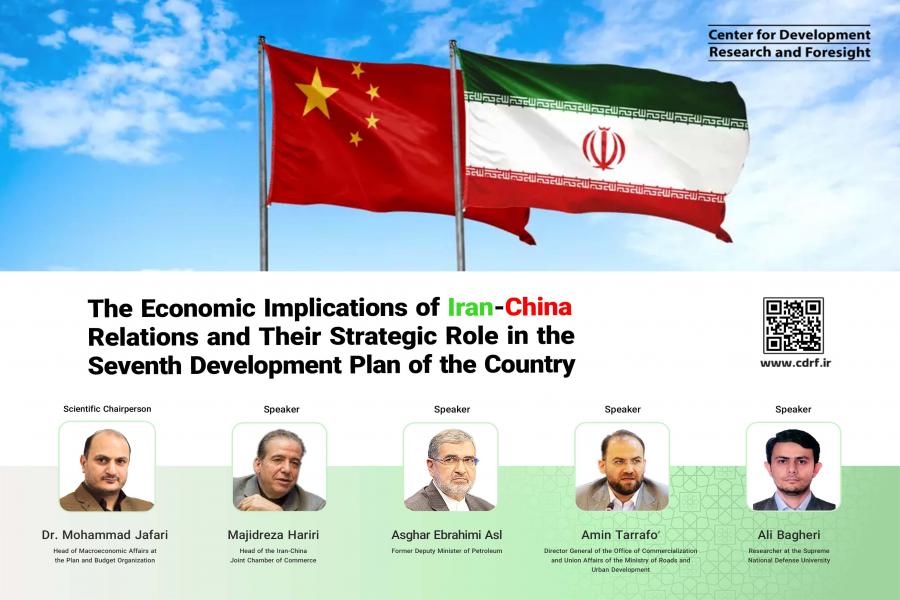
The Economic Implications of Iran-China Relations and Their Strategic Role in the Seventh Development Plan
The economic development and growth of a nation are intrinsically linked to the growth of its investments. As per the data from UNCTAD and domestic sources, it is observed that over the past two decades, the annual foreign investment in Iran has oscillated between 1 and 5 billion dollars. However, the potential for attracting foreign capital has seen a decline due to a myriad of internal and external risks coupled with investment barriers. To achieve the development objectives, an investment exceeding 200 billion dollars is necessitated, out of which a minimum of 100 billion dollars must be procured from external sources.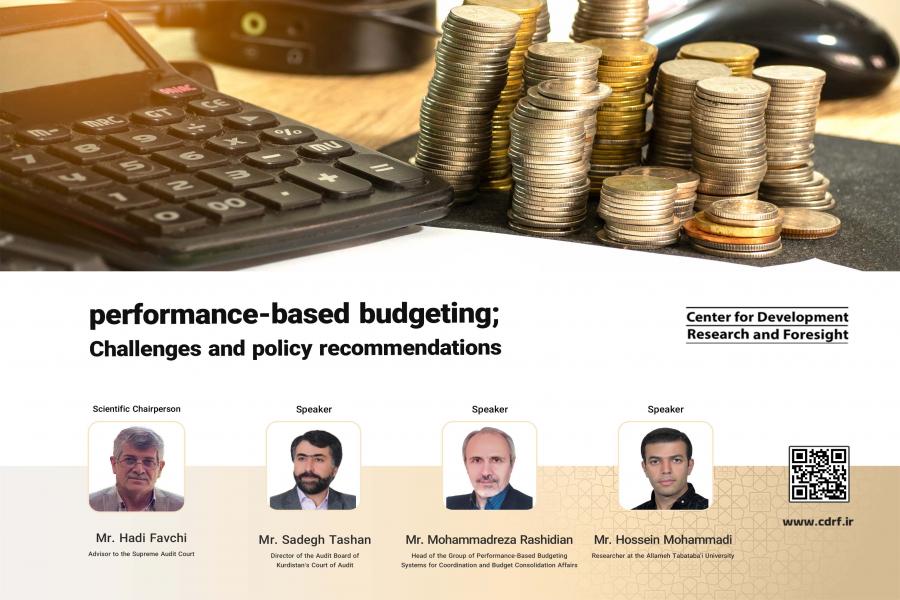
performance-based budgeting; Challenges and policy recommendations
Performance-based budgeting fosters optimal resource utilization, enhances productivity through efficiency improvement, facilitates the achievement of goals, aligns strategic objectives with operational plans, and promotes transparency and accountability. When properly implemented and scientifically managed, this type of budgeting lays the groundwork for good governance and facilitates the realization of societal values.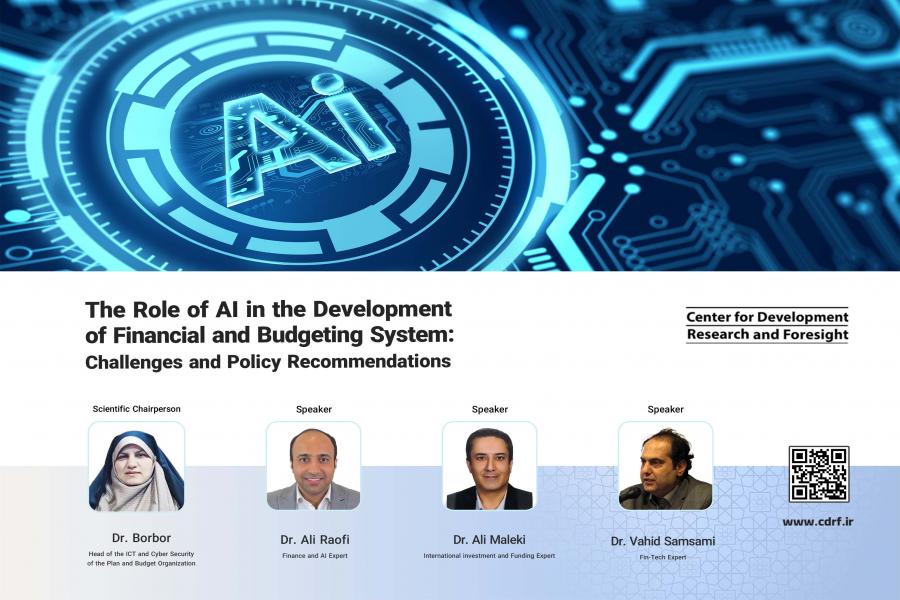
Artificial Intelligence and its role in the Development of Financial Systems and Budgeting
Artificial intelligence (AI) has emerged as a transformative technology, extensively studied and developed over the past seven decades. Its growing prominence has rendered it an indispensable tool for governments worldwide. While AI's potential to enhance decision-making power and quality remains an ongoing area of inquiry, its application in certain policy domains, such as public budget drafting, has received limited attention. This paper delves into the untapped potential of AI in budget allocation, a critical aspect of financial policy.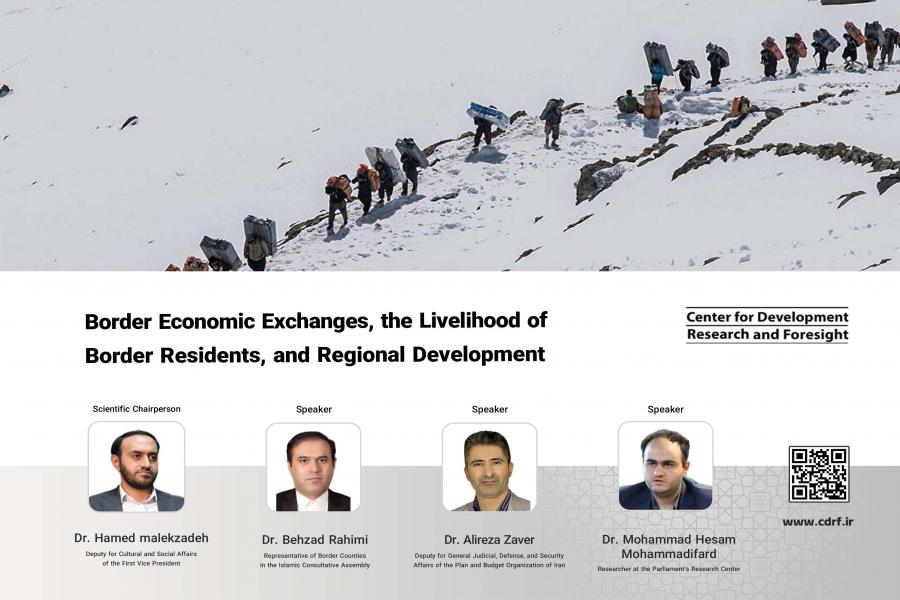
Border Economic Challenges: The livelihood of Residents and Regional Development
The government of Islamic Republic of Iran has long recognized the importance of harnessing the capabilities of the public sector to align with its strategic objectives. To effectively achieve this decentralization, local governance structures must be activated and integrated within the broader framework of national governance. A clear model and procedure for aligning various institutions under local and central governance is crucial for facilitating border economic exchanges. Addressing the existing challenges faced by border residents and leveraging the potential benefits of neighborhood relations require a comprehensive approach that transcends mere confrontation and intervention. Only through a well-defined model of cooperation and collaboration can the existing laws and plans be effectively implemented to improve the livelihoods of border communities and foster regional prosperity.
Maritime Development is a Key to Boast Economic Growth
The recent conference at the Center for Development Research and Foresight highlighted the growing importance of the maritime economy to the country's future. Experts and officials convened to discuss the potential of the seas and coasts to drive growth, create jobs, and address some of the country's long-term challenges.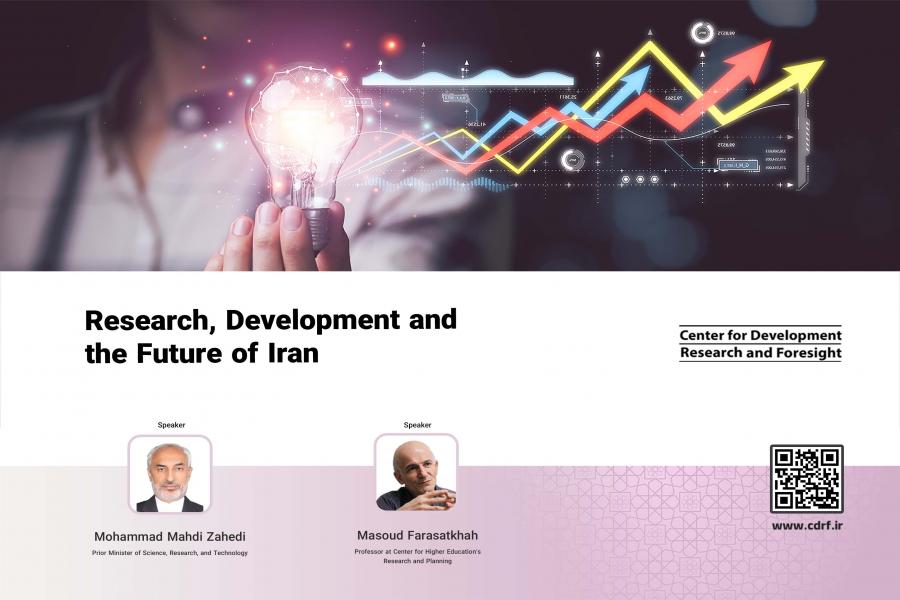
The future of Iran from the lens of Scholars
Iranian officials and experts are calling for a major shift towards "big science" as the key to unlocking the country's full potential and navigating the complexities of the 21st century. This comes amidst a heated debate on the role of science in Iran's development, with emphasis placed on moving beyond small-scale research towards large-scale initiatives the Center for Development Research and Foresight.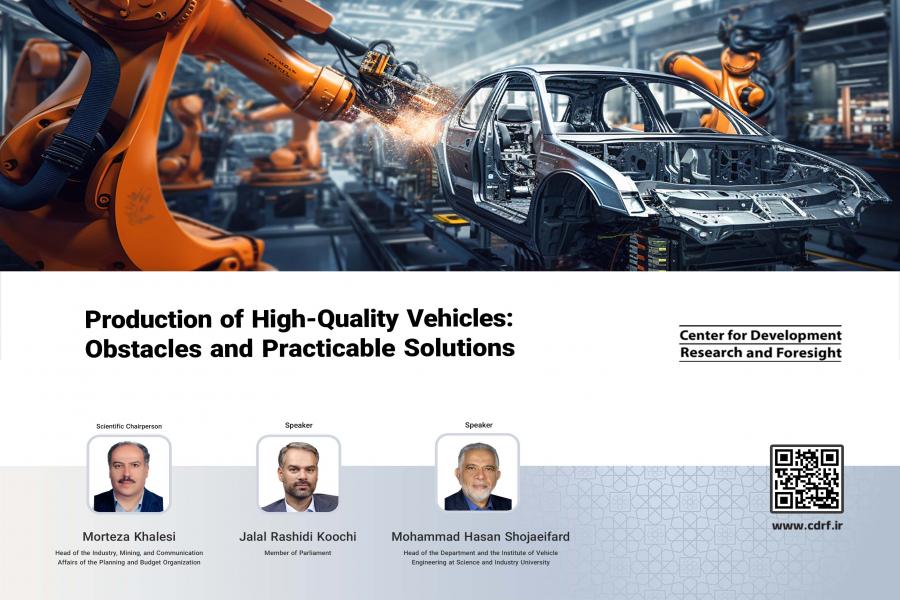
High-Quality Automative Production: Obstacles and Practicable Solutions
In the conference at the Center for Development Research and Foresight it is declared that while Iran's auto industry is roaring back to life, its path to success is far from smooth. With a mix of challenges and opportunities, the country's carmakers are navigating a complex landscape of sanctions, government control, and a growing demand for mobility.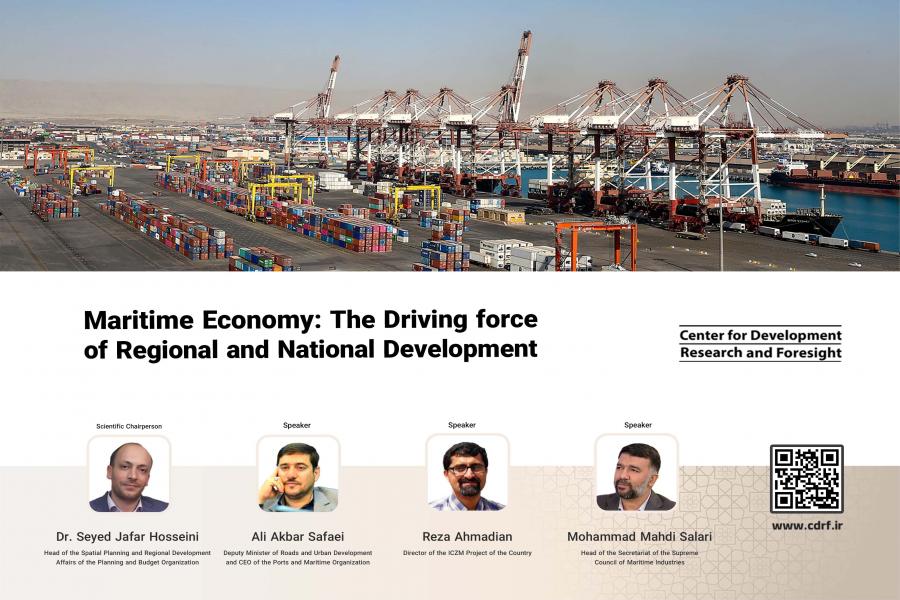
Maritime Development is a Key to Boast Economic Growth
The recent conference at the Center for Development Research and Foresight highlighted the growing importance of the maritime economy to the country's future. Experts and officials convened to discuss the potential of the seas and coasts to drive growth, create jobs, and address some of the country's long-term challenges.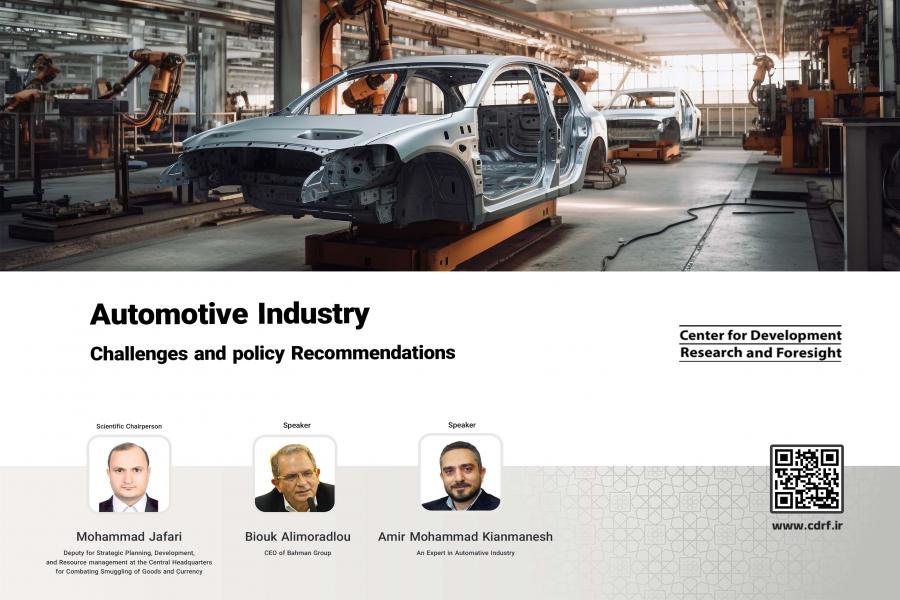
Automotive Industry: Challenges and Policy Recommendations
The recent conference at the Center for Development Research and Foresight, titled "Automotive Industry: Challenges and Policy Recommendations," was held with the participation of notable figures. These included Mohammad Jafari, Deputy for Strategic Planning, Development, and Resource Management of the Central Headquarters for Combating Smuggling of Goods and Currency; Biouk Alimoradlou, CEO of Bahman Group; and Amir Mohammad Kian Manesh, an expert in the automotive industry.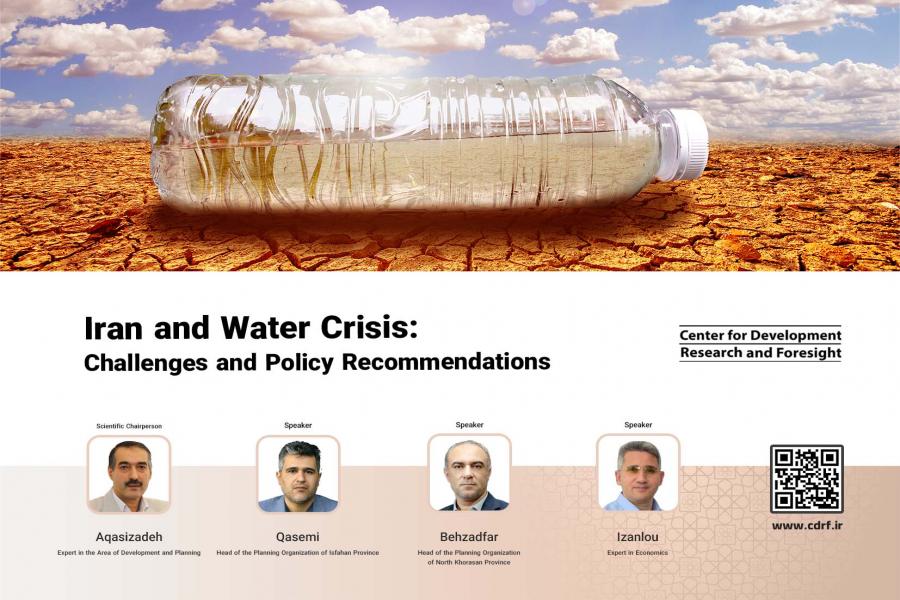
Iran's Water Crisis: A Looming Threat, Experts Warn
Iran's water crisis, long simmering beneath the surface, has reached a boiling point, according to experts who gathered at a conference titled “Iran's Water Crisis: A Looming Threat, Experts Warn” at the Center for Development Research and Foresight. The conference brought together leading figures in planning, development, economics, and water resource management to discuss the challenges and potential solutions to this pressing issue.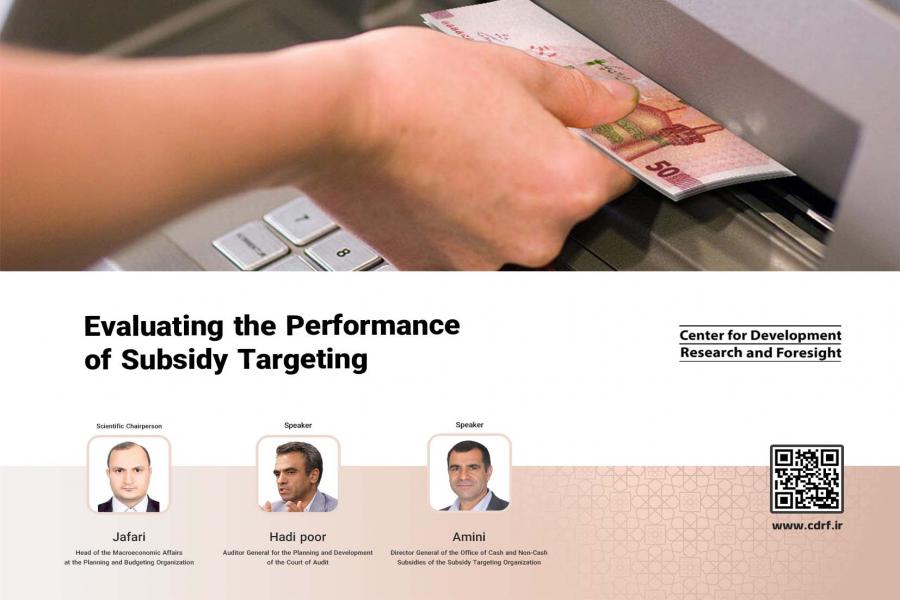
Evaluating the Performance of Subsidy Targeting
A heated debate unfolded at the conference titled “Evaluating the Performance of Subsidy Targeting” at the Center for Development Research and Foresight with key figures clashing over the effectiveness and future of the nation's complex support system.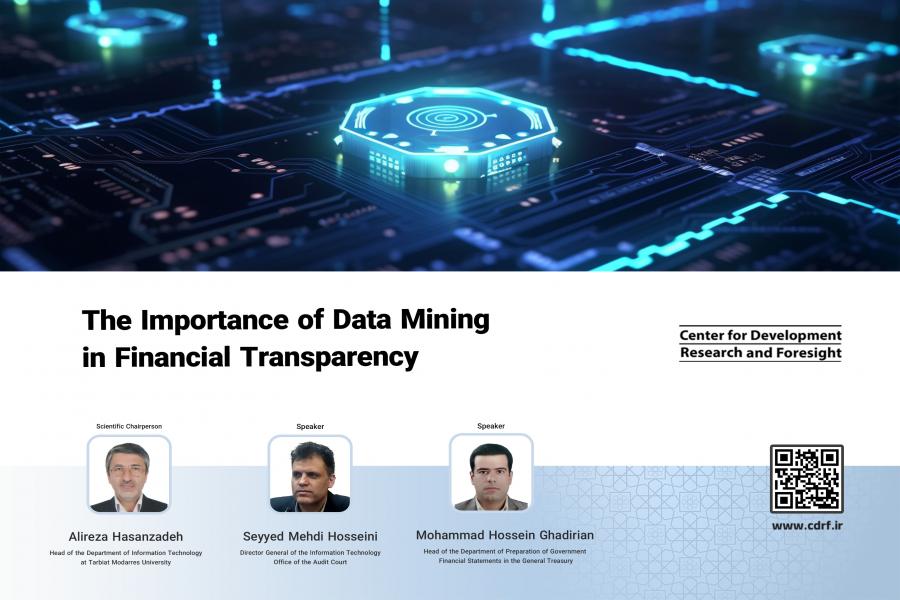
The Importance of Data Mining in Financial Transparency
The recent conference at the Center for Development Research and Foresight brought together experts to discuss how data governance and mining can improve the country's budgeting process. The conference was part of an ongoing series aimed at improving budget transparency and efficiency.
Parliamentary Intervention in Budgeting: A Scrutiny-Seeking Issue
The Conference titled “Parliamentary Intervention in Budgeting: A Scrutiny-Seeking Issue” with a concentration on improving the budgeting process in Iran, held at the Center for Development Research and Foresight, brought together experts to discuss the role of parliament in budget decision-making. The conference highlighted the ongoing debate about the extent to which parliament should be involved in the budgeting process, with some arguing for more oversight and others emphasizing the need for executive flexibility.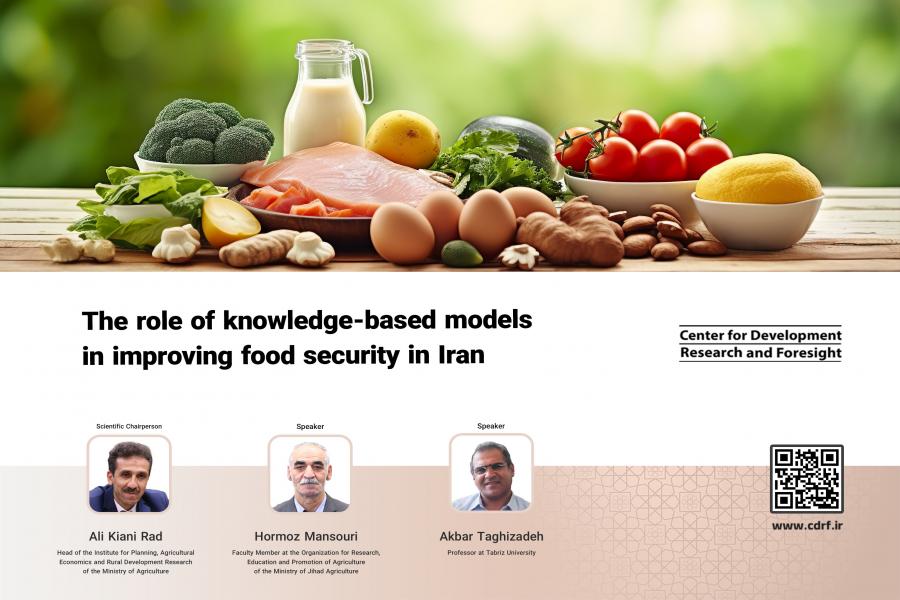
The Role of Knowledge-Based Models in Improving Food Security in Iran
The conference titled “The Role of Knowledge-Based Models in Improving Food Security in Iran” at the Center for Development Research and Foresight brought together experts to discuss the critical issue of food security in the country. The conference highlighted the challenges facing Iran's agricultural sector and explored potential solutions.
Shedding light on the Minimum Wage Policy in Iran
The recent conference titled “Shedding light on the Minimum Wage Policy in Iran” at the Center for Development Research and Foresight brought together economists and policymakers to discuss the country's wage policies. Hojjatollah Mirzaei, a faculty member at Allameh Tabataba'i University, criticized the recent wage hikes as inadequate and unevenly implemented. He argued that they failed to keep pace with inflation, leaving workers worse off, and called for the government to be more transparent about the basis for the increases. Mirzaei also expressed concern about the lack of consistency across different sectors, noting that some firms struggle to comply with the mandated increases. He emphasized the need for a more nuanced approach that considers the specific challenges of different industries.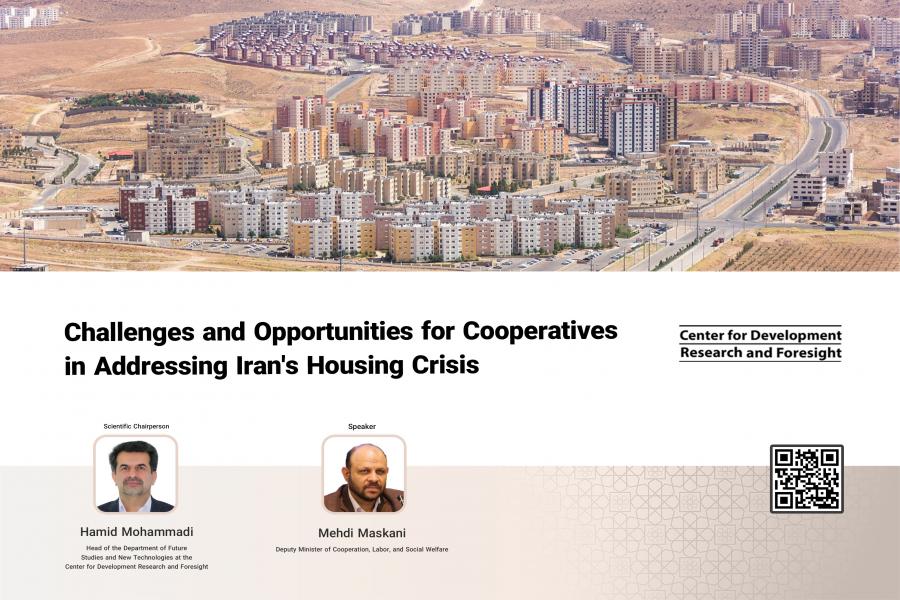
Challenges and Opportunities for Cooperatives in Addressing Iran's Housing Crisis
The recent conference of “Challenges and Opportunities for Cooperatives in Addressing Iran's Housing Crisis” at the Center for Development Research and Foresight brought together experts from various fields to address the critical issue of housing affordability in Iran. The conference highlighted the challenges faced by the Iranian housing market and explored potential solutions, particularly through the lens of cooperative housing models.
Unlocking Potential: Reforming Iran's Free Zones
The conference titled “Unlocking Potential: Reforming Iran's Free Zones” was held at the Center for Development Research and Foresight to discuss the performance of free zones in Iran. The conference was attended by stakeholders from the public and private sectors, including government officials, academics, and businesspeople.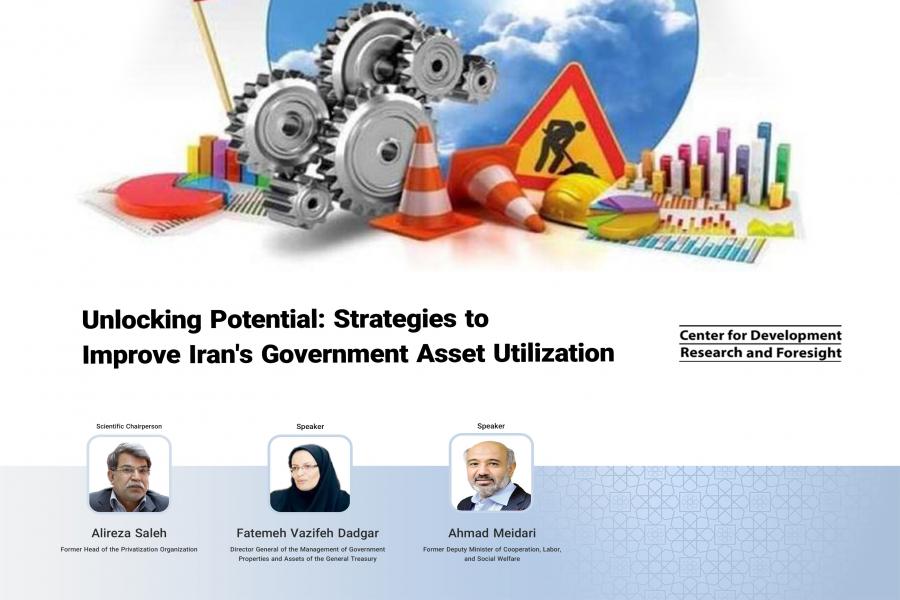
Unlocking Potential: Strategies to Improve Iran's Government Asset Utilization
In the conference titled “Unlocking Potential: Strategies to Improve Iran's Government Asset Utilization” at the Center for Development Research and Foresight aimed at addressing the challenges of managing government assets, Iranian officials discussed issues ranging from inefficient asset allocation to the need for legal reforms. The conference brought together experts from various sectors to explore strategies for maximizing the value of government-owned properties and resources.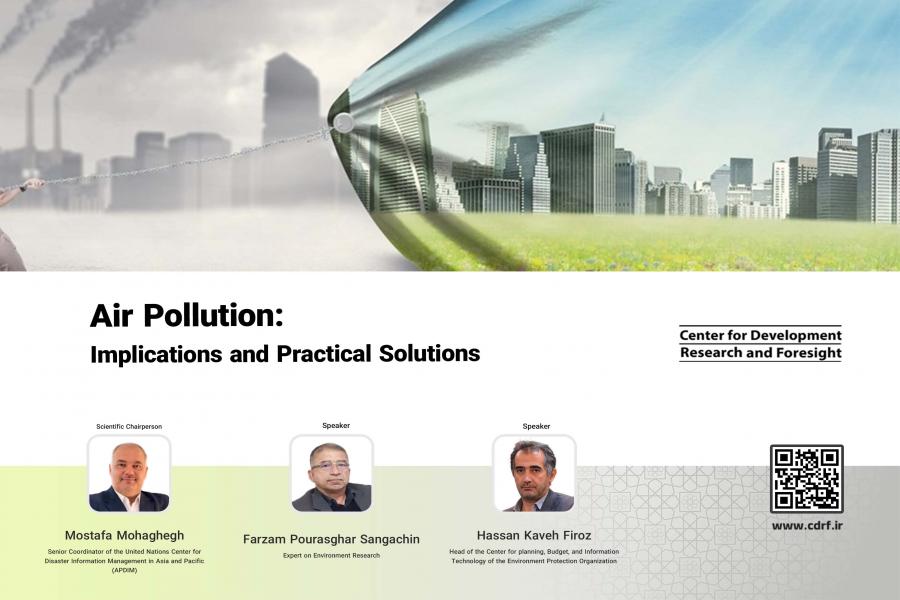
Air Pollution: Challenges and Operational Solutions
Air pollution is a major threat facing the world today, with millions of deaths attributed to it each year, according to experts who convened at the scientific-specialized conference titled "Air Pollution: Challenges and Operational Solutions" at the Center for Development Research and Foresight.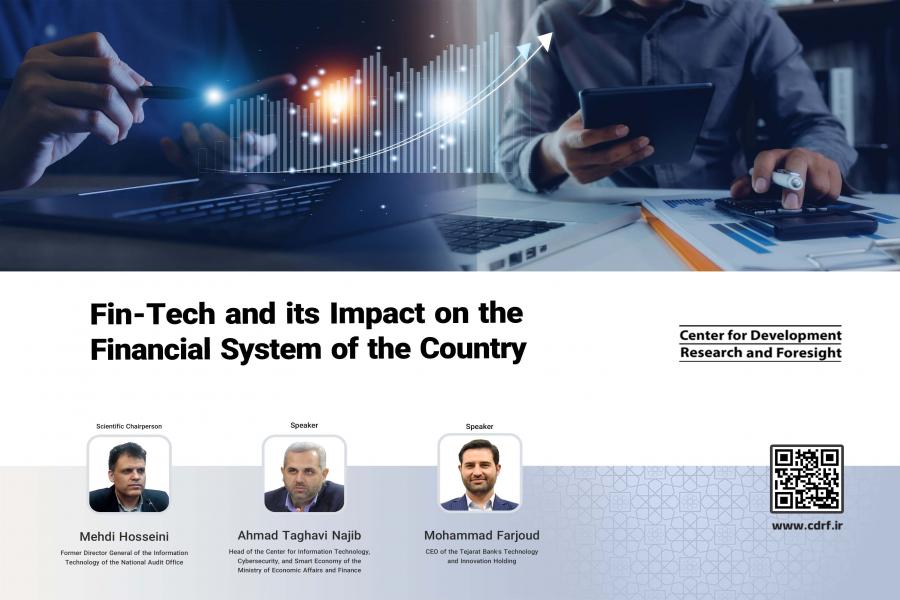
The Role of Financial Technologies in the Country’s Economic System: Challenges and Policy Recommendations
The scientific-specialized conference, titled "The Role of Financial Technologies in the Country's Economic System: Challenges and Policy Recommendations" at the Center for Development Research and Foresight brought together experts from various fields to discuss the potential and pitfalls of FinTech in Iran's developing economy.
Extraterrestrial Cultivation: Water and Food Security
In a move that could revolutionize its agricultural sector, Iran is setting its sights on extraterrestrial cultivation, aiming to tap into the water and soil resources of other countries to improve food security and expand its agricultural exports. This ambitious plan was discussed at the conference titled “Extraterrestrial Cultivation: Water and Food Security” at the Center for Development Research and Foresight.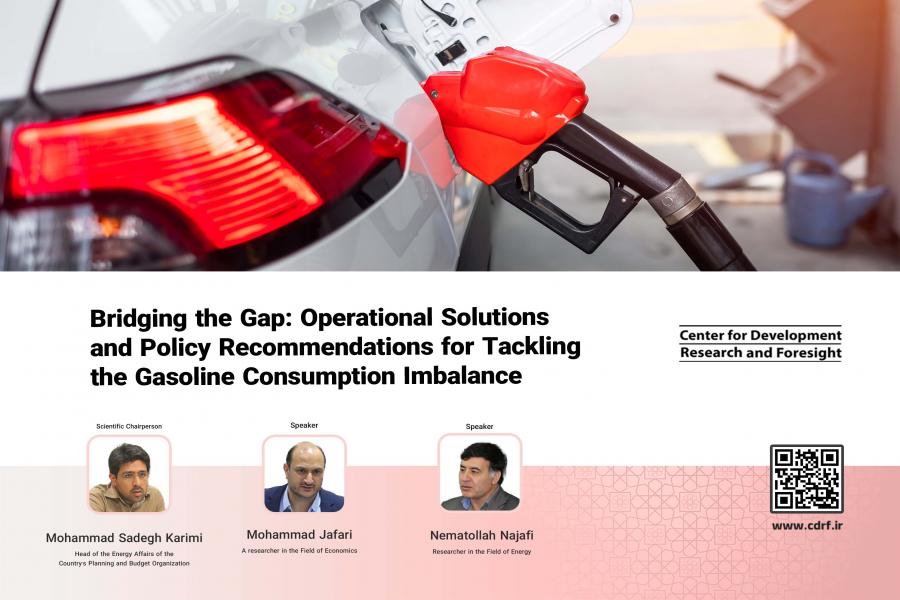
Bridging the Gap: Operational Solutions and Policy Recommendations for Tackling the Gasoline Consumption Imbalance
Iran is facing a growing problem at the pump. The country is burning through gasoline at an alarming rate, and experts are calling for action. In the recent conference titled “Bridging the Gap: Operational Solutions and Policy Recommendations for Tackling the Gasoline Consumption Imbalance” at the Center for Development Research and Foresight, key figures from government and academia discussed a range of solutions to bridge the gap between Iran's fuel consumption and supply.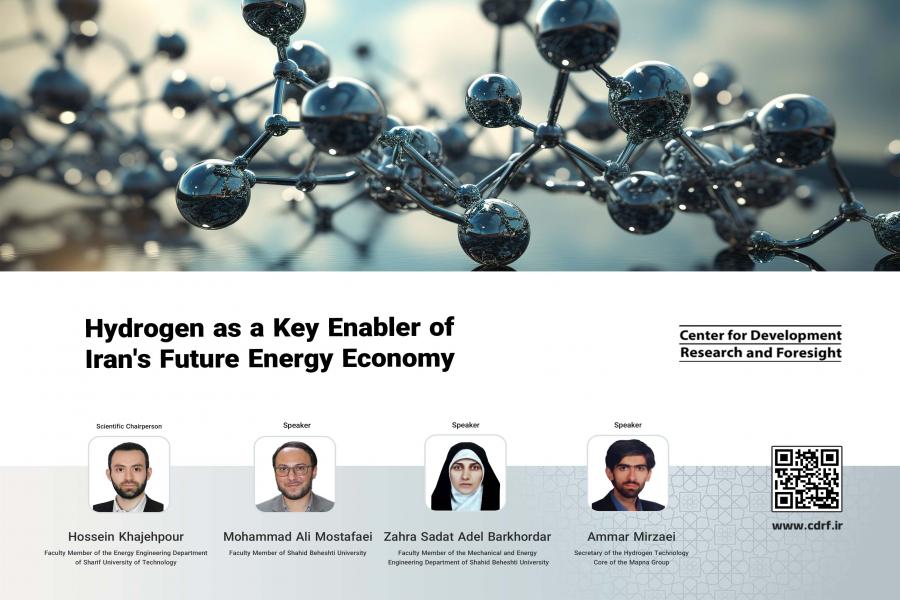
Hydrogen as a Key Enabler of Iran's Future Energy Economy
Could hydrogen be the key to unlocking Iran's clean energy future? That's the question experts tackled at the recent conference titled “Hydrogen as a Key Enabler of Iran's Future Energy Economy” hosted by the Center for Development Research and Foresight (CDRF).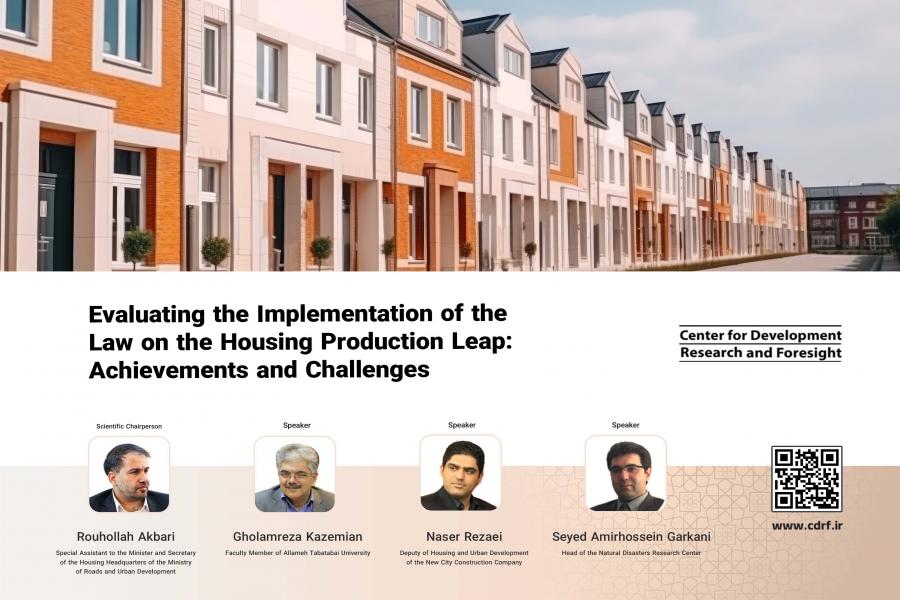
Evaluating the Implementation of the Law on the Housing Production Leap: Achievements and Challenges
In a recent conference titled "Evaluating the Implementation of the Law on the Housing Production Leap: Achievements and Challenges" hosted by the Center for Development Research and Foresight (CDRF) it has been an enlightening debate surrounding the effectiveness of the Law on Housing Production Leap.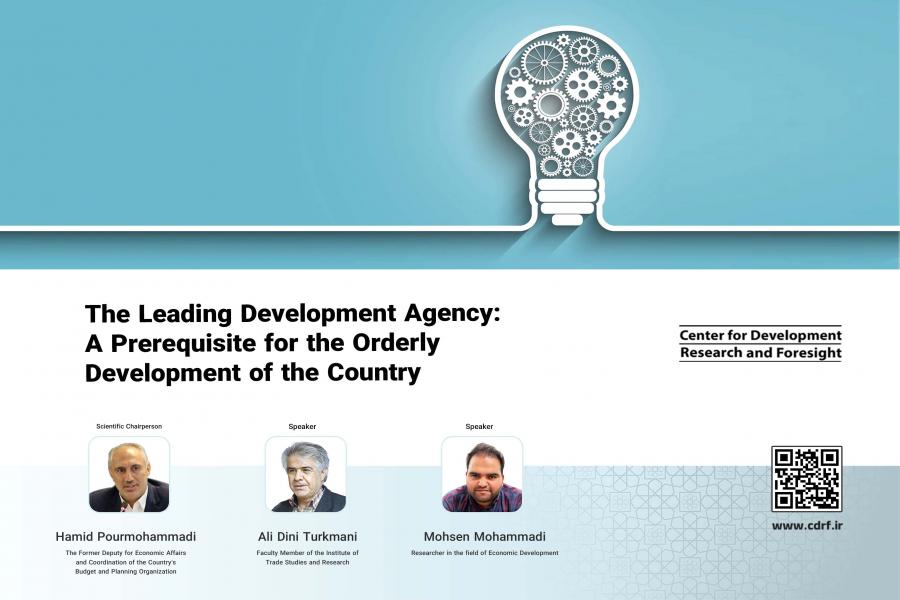
The Leading Development Agency: A Prerequisite for the Orderly Development of the Country
Iran might be looking to a new approach to development. The recent conference at the Center for Development Research and Foresight in tandem with the University of Tehran's Faculty of Governance titled "The Leading Development Agency: A Prerequisite for the Orderly Development of the Country" addressed the significance of a super agency with more power and a sharper focus than existing government bodies.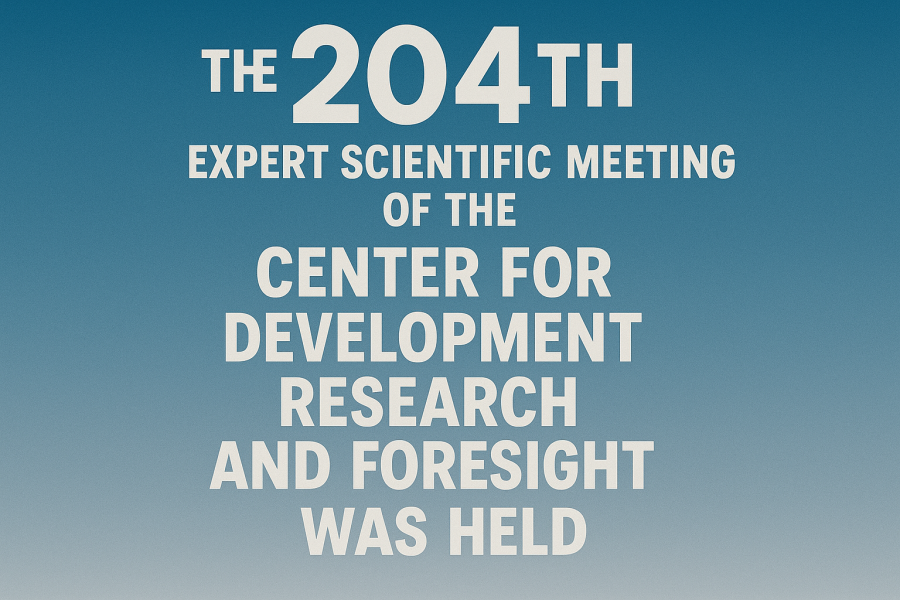
The 204th Expert Scientific Meeting of the Center for Development Research and Foresight (CDRF) was held.
According to the Public Relations Office of the CDRF, the 204th Expert Scientific Meeting of the CDRF was held on Tuesday, April 15, 2025, under the title 'The Government's Orientation in Fulfilling the 1404 Slogan (Investment for Production).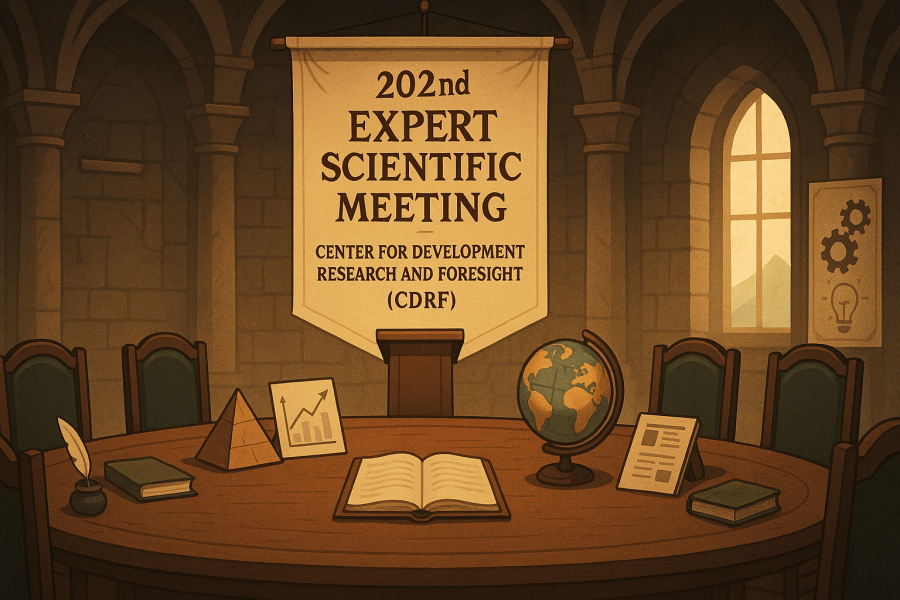
The 202nd Expert Scientific Meeting of the Center for Development Research and Foresight (CDRF) was held.
According to the Public Relations Office of the CDRF, the fifth international meeting and the 202nd expert scientific meeting of the CDRF was held under the title “The Impacts of Land Degradation and Climate Change on Iran's Economic and Social Development.” In this meeting, Mostafa Mohaghegh, Senior Coordinator of the United Nations Asian and Pacific Center for the Development of Disaster Information Management (APDIM), served as the scientific chair of the meeting. In addition, Farzam Pourasghar Sangachin, a researcher and expert in the field of environment, and Sanjay Kumar Srivastava, Chief of Disaster Risk Reduction at the United Nations Economic and Social Commission for Asia and the Pacific (ESCAP), participated as keynote speakers, presenting their viewpoints.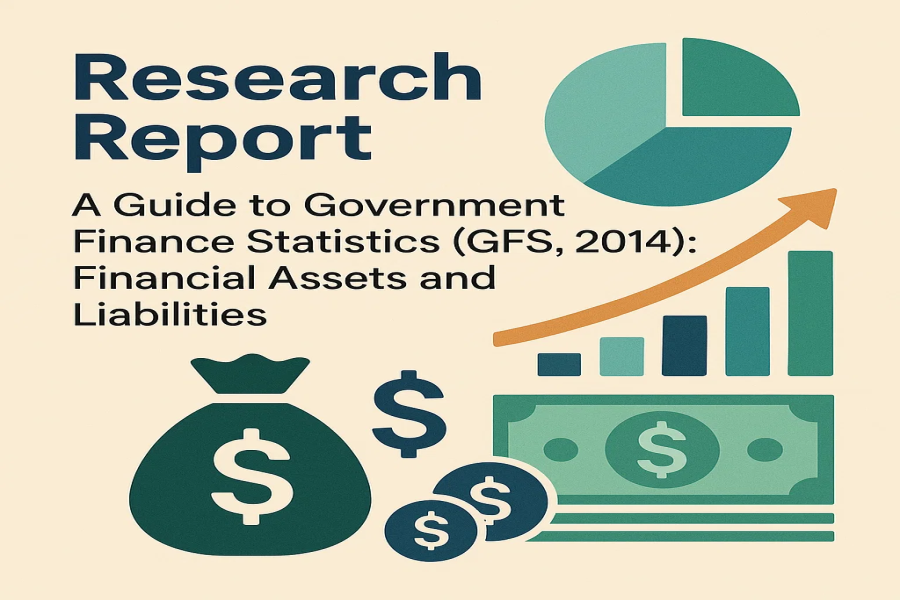
Research Report for a Guide to Government Finance Statistics (GFS, 2014): Financial Assets and Liabilities
According to the Public Relations Office of the Center, the research report titled A Guide to Government Finance Statistics (GFS, 2014): Financial Assets and Liabilities has been published by the Research Group on Modern Systems of Planning, Budgeting, and Modeling at the Center for Development Studies and Foresight. The introduction of the report states: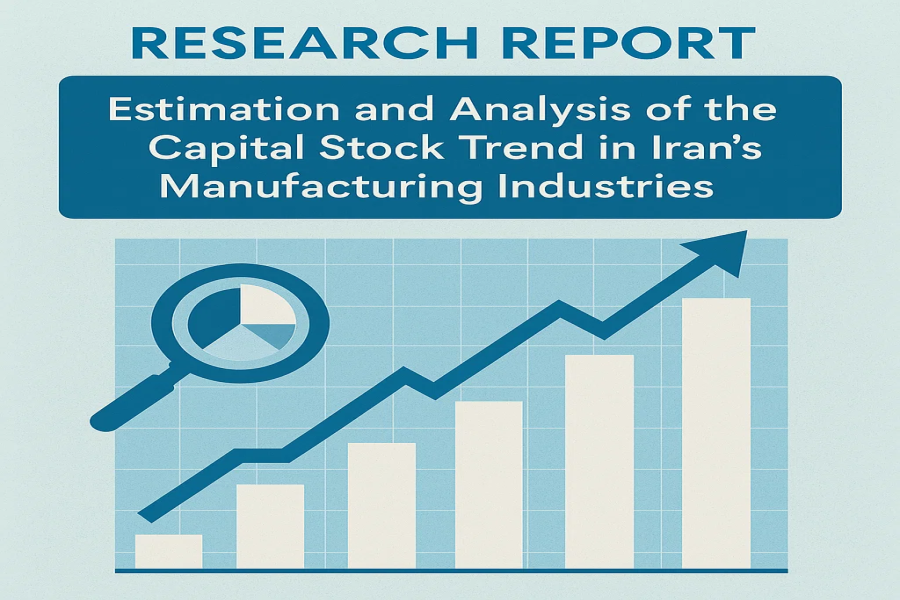
Research report on Estimation and Analysis of the Capital Stock Trend in Iran’s Manufacturing Industries
According to the Public Relations Office of the Center, the Research Group on Modern Systems of Planning, Budgeting, and Modeling at the Center for Development Studies and Foresight has published the research report titled: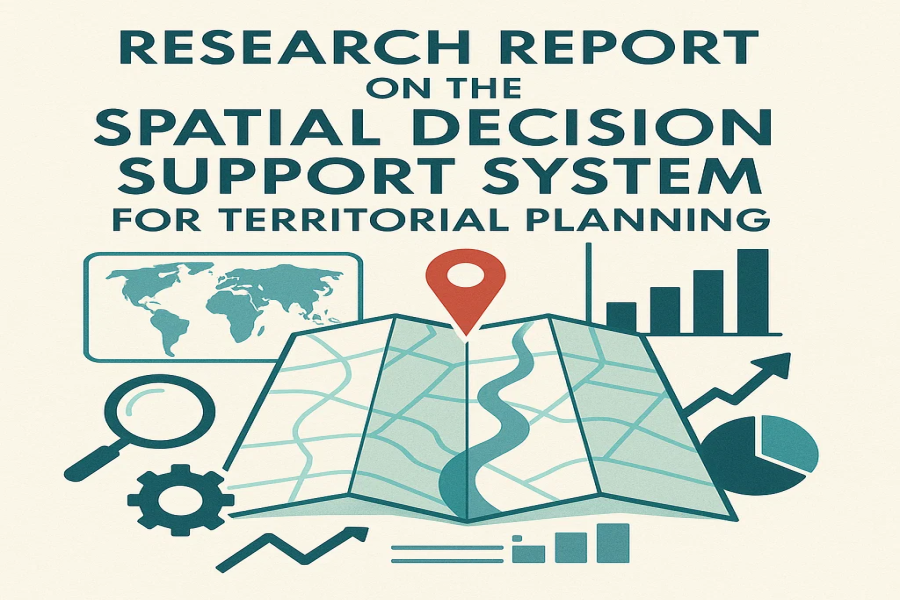
Research report on the Spatial Decision Support System for Territorial Planning
The Research Group on Land Use Planning, Regional Development, and Balance at the Center for Development Studies and Foresight has published its latest research report titled: "Spatial Decision Support System for Territorial Planning." The executive summary of the report states: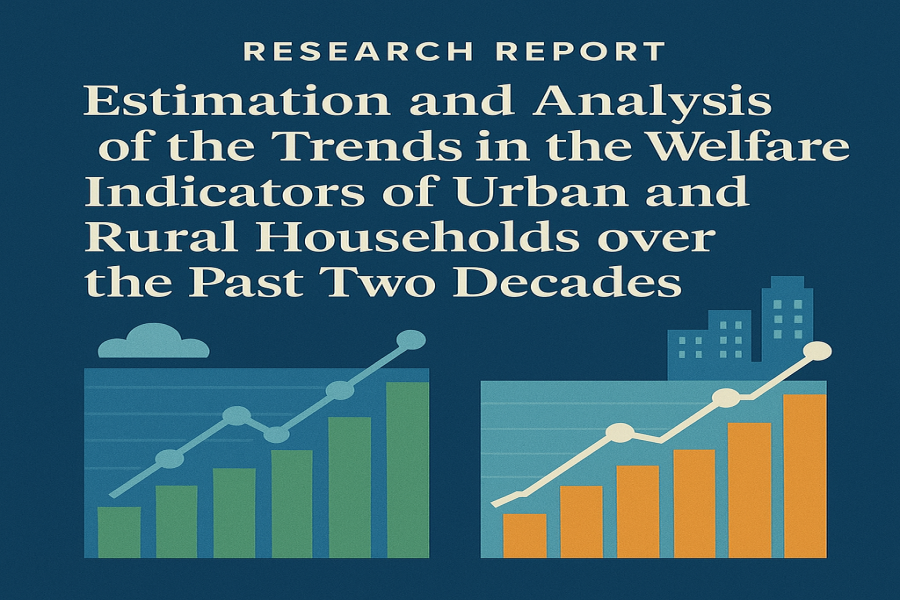
Research report on the Estimation and Analysis of the Trends in the Welfare Indicators of Urban and Rural Households over the Past Two Decades
According to the Public Relations Office of the Center, the Research Group on Modern Systems of Planning, Budgeting, and Modeling has published its latest research report titled: Estimation and Analysis of the Trends in the Welfare Indicators of Urban and Rural Households over the Past Two Decades. The executive summary of the report notes: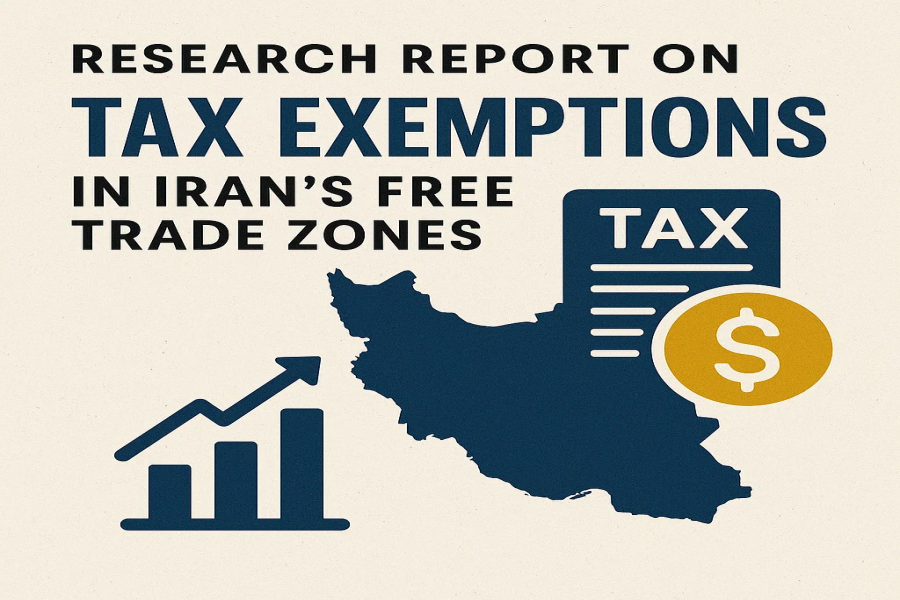
Research Report on Tax Exemptions in Iran’s Free Trade Zones
According to the Center’s Public Relations Office, the research report “Tax Exemptions in Iran’s Free Trade Zones” has been published by the Research Group for New Systems of Planning, Budgeting, and Modeling at the Center for Development and Foresight Research. A section of the executive summary of this report states: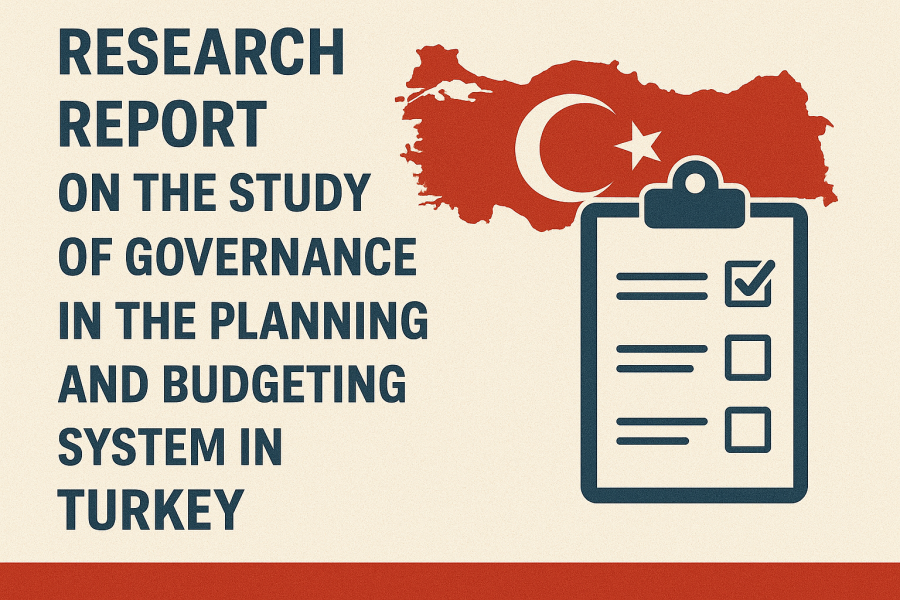
Research report on the Study of Governance in the Planning and Budgeting System in Turkey
According to the Public Relations of the Center for Development and Foresight Research, the Research Group on Modern Systems of Planning, Budgeting, and Modeling published a research report titled "Study of Governance in the Planning and Budgeting System in Turkey" in November 2024.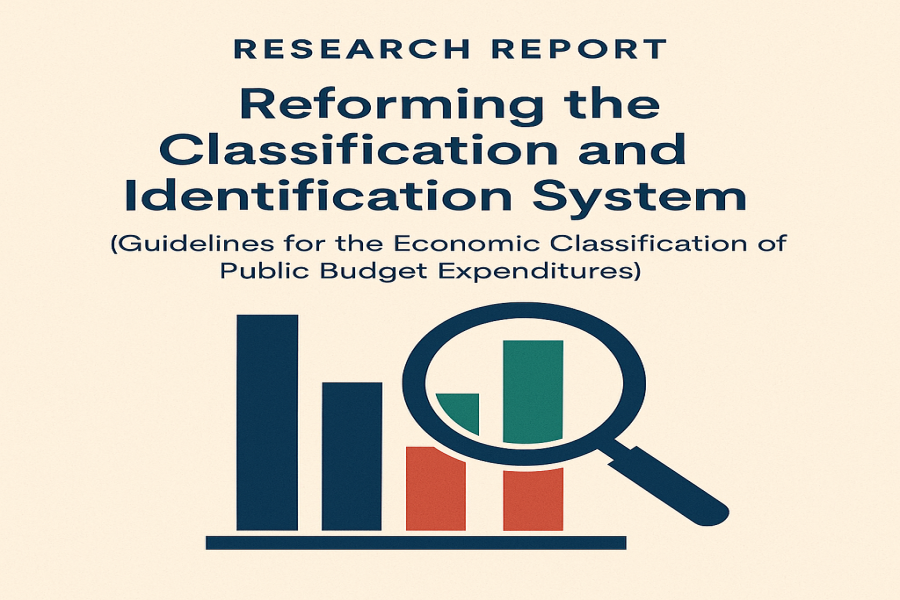
Research report on Reforming the Classification and Identification System (Guidelines for the Economic Classification of Public Budget Expenditures)
The Public Relations Office of the Center for Development and Foresight Research announced that the Research Group on Modern Planning, Budgeting, and Modeling at the center has released a new research report titled "Reforming the Classification and Identification System (Guidelines for the Economic Classification of Public Budget Expenditures)."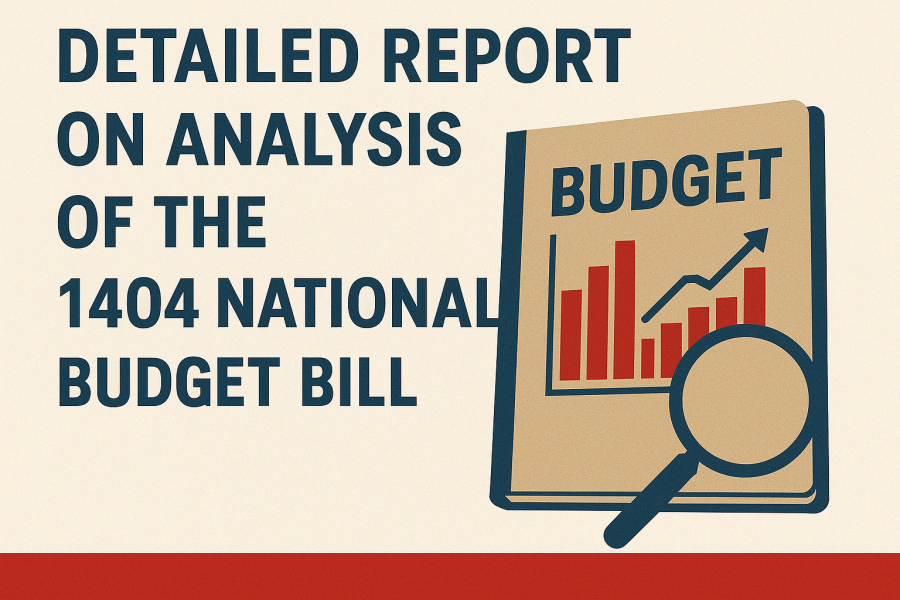
Detailed report on analysis of the 1404 national budget bill
According to the Public Relations Office of the Center for Development and Foresight Studies, the Research Group on New Planning, Budgeting, and Modeling Systems at the center has published a research report titled "Explanation and Analysis of the 1404 National Budget Bill". The executive summary of this report states: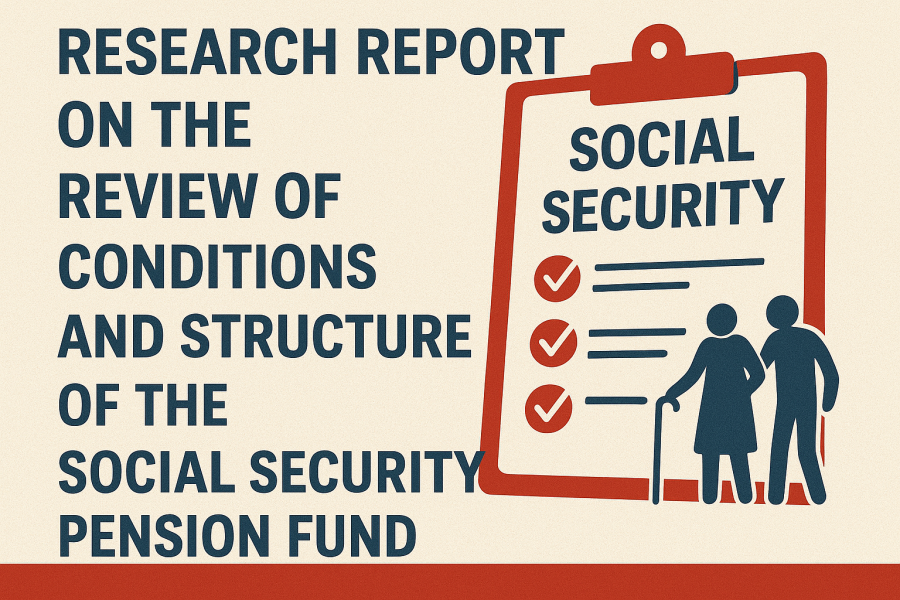
Research report on the Review of Conditions and Structure of the Social Security Pension Fund
The latest research report titled “Review of Conditions and Structure of the Social Security Pension Fund” has been released by the Public Relations Office of the Center for Development and Foresight Research. This report was prepared by the Research Group on Modern Planning, Budgeting, and Modeling Systems, in collaboration with the specialized working group on Enhancing Intelligent, Technological, and Community-Based Oversight at the First National Conference on Improving Budgeting Processes in Iran.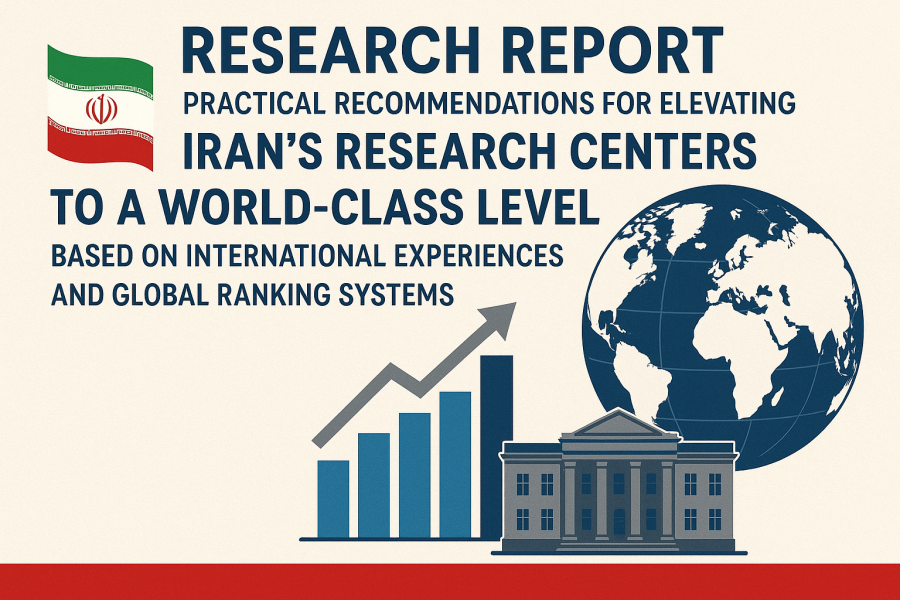
Research report on Practical Recommendations for Elevating Iran’s Research Centers to a World-Class Level Based on International Experiences and Global Ranking Systems
According to the Public Relations of the Center for Development and Foresight Research, the latest research report titled "Practical Recommendations for Elevating Iran’s Research Centers to a World-Class Level Based on International Experiences and Global Ranking Systems" has been released by the Research Group on Modern Planning, Budgeting, and Modeling.
The 201st Expert Scientific Meeting of the Center for Development Research and Foresight (CDRF) was held.
According to the Public Relations Office of the CDRF, the eleventh session of the series entitled “The Future Outlook of Iran” and the 201st meeting of the CDRF was held under the title “A Critical Assessment of the Vision of the Islamic Republic of Iran in the Horizon of 1404 AH.”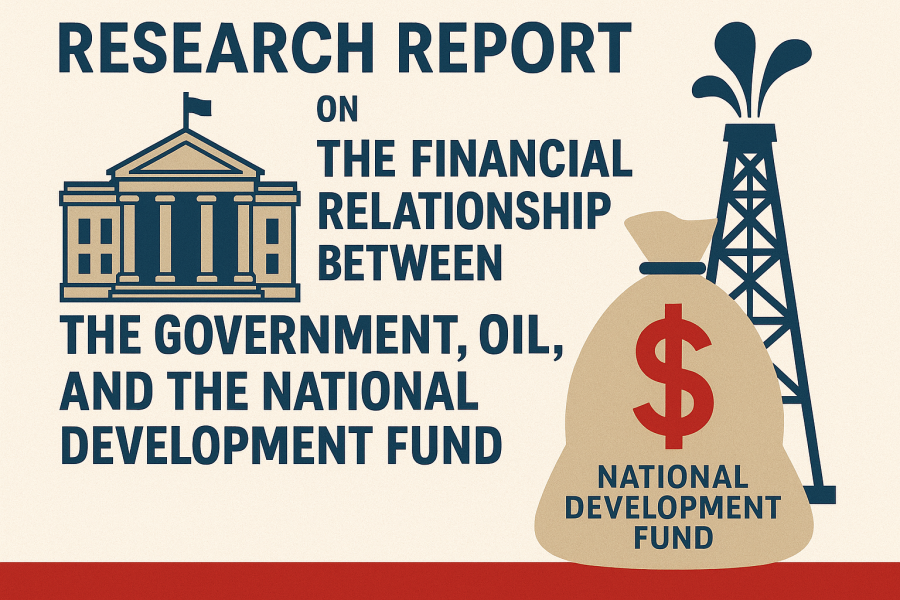
Research report on The Financial Relationship between the Government, Oil, and the National Development Fund
According to the Public Relations Office of the Center for Development and Foresight Research, the Research Group on Modern Systems of Planning, Budgeting, and Modeling has published a research report titled "The Financial Relationship between the Government, Oil, and the National Development Fund." This report is the outcome of expert discussions held within the specialized working group on Macroeconomics and Sustainable Development, as part of the series of events for the First National Conference on Improving the Budgeting Process in Iran.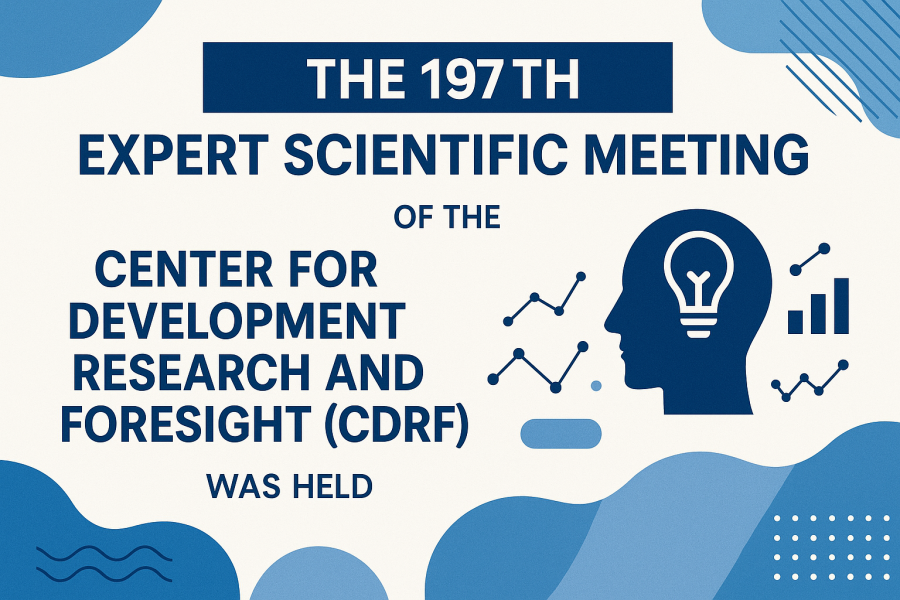
The 197th Expert Scientific Meeting of the Center for Development Research and Foresight (CDRF) was held.
According to the Public Relations Office of the CDRF, the seventh session in the series of meetings titled “The Future Vision of the Islamic Republic of Iran” and the 197th meeting of the CDRF was held under the title “The Role of Technology Development in Iran's Civil Vision.”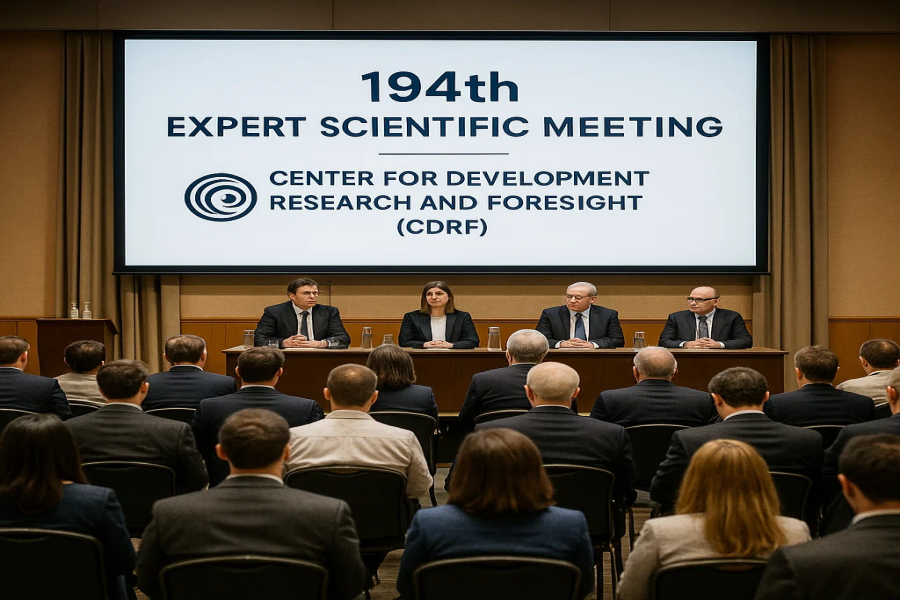
The 194th Expert Scientific Meeting of the Center for Development Research and Foresight (CDRF) was held.
According to the Public Relations Office of the CDRF, the fifth session of the “Future Vision of the Islamic Republic of Iran” series and the 194th expert scientific meeting of the CDRF was held under the title “The Vision of Demographic Changes and Urban Society.”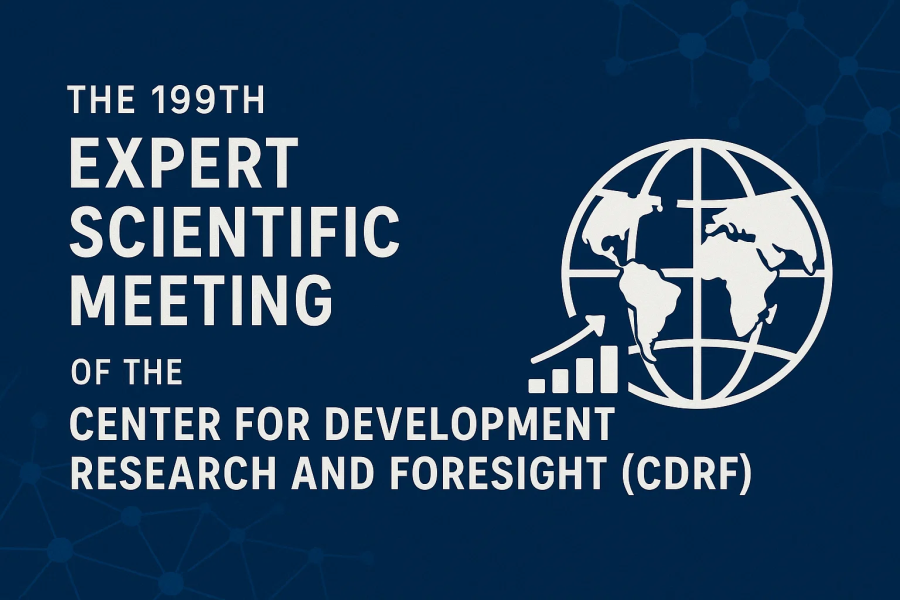
The 199th Expert Scientific Meeting of the Center for Development Research and Foresight (CDRF) was held.
According to the Public Relations Office of the CDRF, the ninth session of the series entitled “The Future Outlook of Iran” and the 199th expert scientific meeting of the CDRF was held under the title “Agriculture in the Vision of the Islamic Republic of Iran.”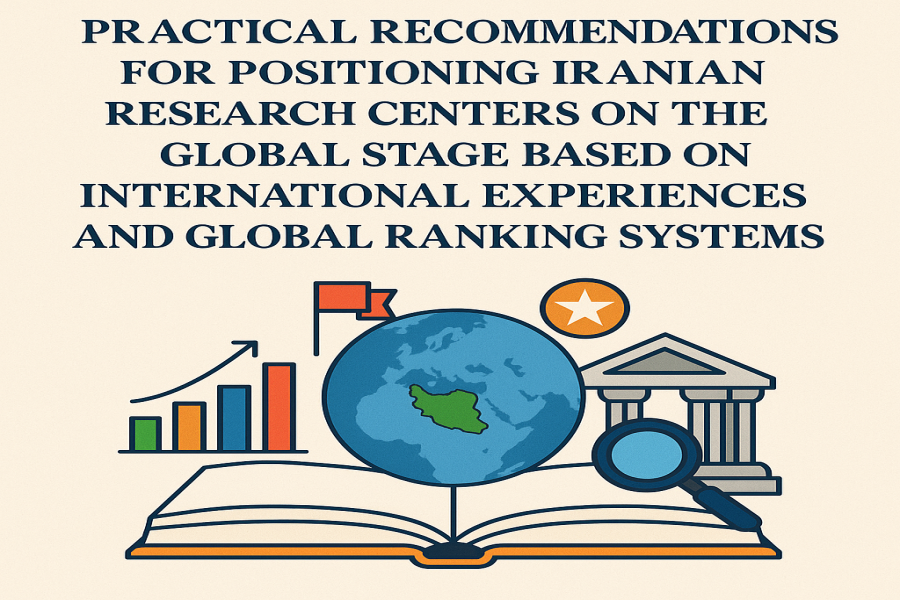
The research report titled “Practical Recommendations for Positioning Iranian Research Centers on the Global Stage Based on International Experiences and Global Ranking Systems” was published.
According to the Public Relations Office of the Center for Development Research and Foresight (CDRF), the latest research report of the CDRF entitled “Practical Recommendations for Positioning Iranian Research Centers on the Global Stage Based on International Experiences and Global Ranking Systems,” has been published by the Research Group on Modern Planning, Budgeting, and Modeling Systems. The executive summary of this research report states: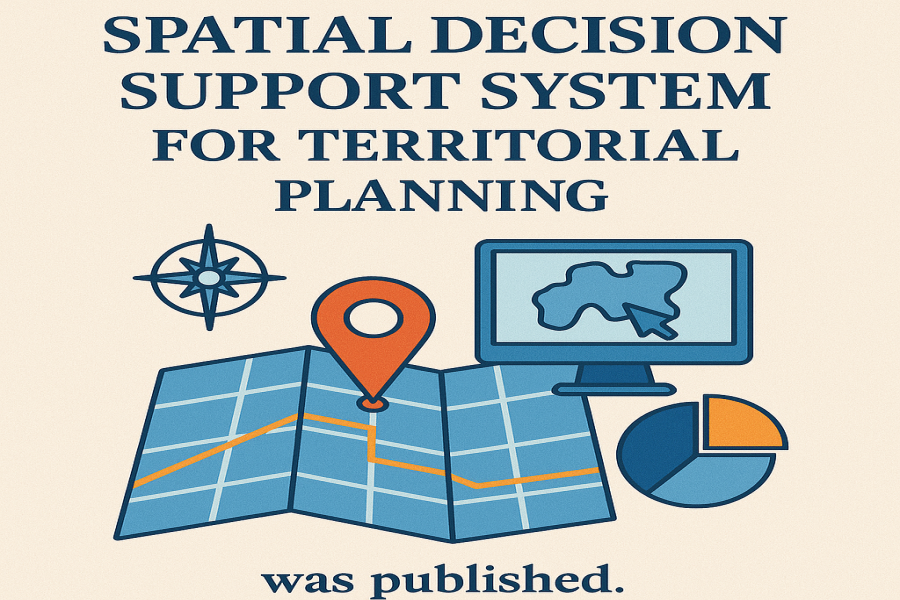
The research report titled “Spatial Decision Support System for Territorial Planning” was published.
The Territorial Planning, Development, and Regional Balance Research Group of the Center for Development Research and Foresight (CDRF) has published its latest research report entitled “Spatial Decision Support System for Territorial Planning.” The executive summary of this research report states: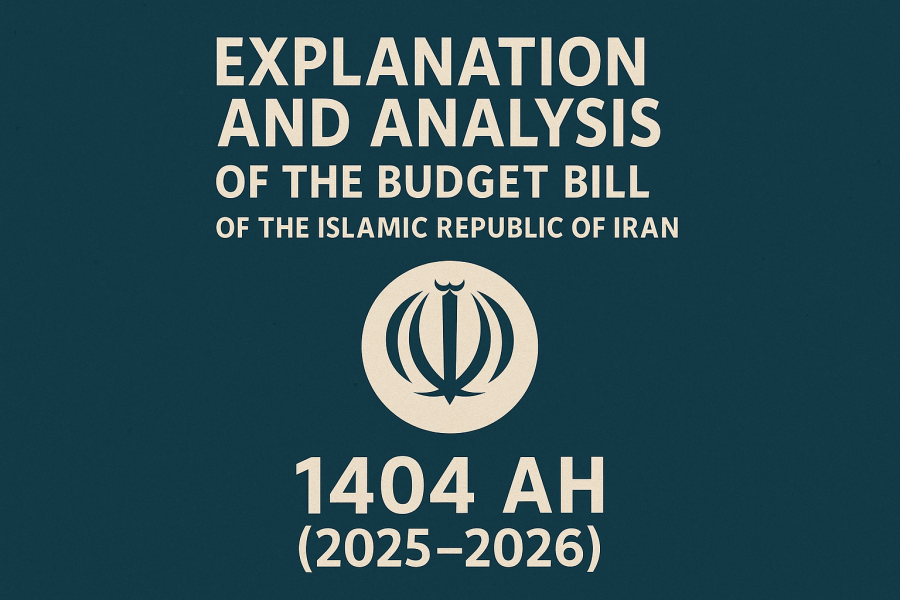
The report titled “Explanation and Analysis of the Budget Bill of the Islamic Republic of Iran 1404 AH (2025-2026)” was published.
According to the Public Relations Office of the Center for Development Research and Foresight (CDRF), the Research Group for Innovative Planning, Budgeting, and Modeling Systems of the CDRF has published a research report entitled “Explanation and Analysis of the Budget Bill of the Islamic Republic of Iran 1404 AH (2025-2026).” The executive summary of this report states: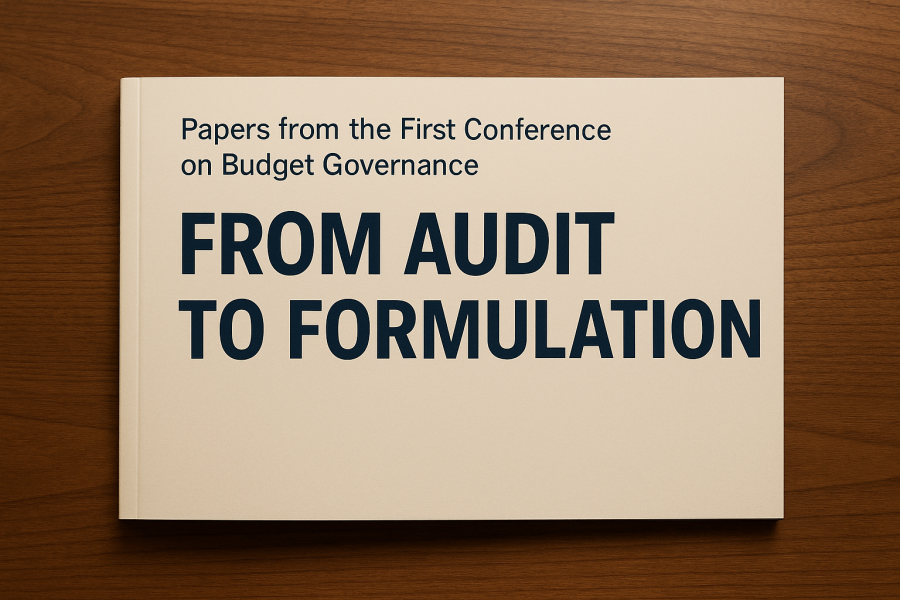
The collection of papers from the First Conference on Budget Governance: From Audit to Formulation was published.
According to the Public Relations Office of the Center for Development Research and Foresight (CDRF), the CDRF has published the collection of papers accepted by the review committee for the First National Conference on Improving the Budgeting Process in Iran, titled “Budget Governance: From Audit to Formulation.”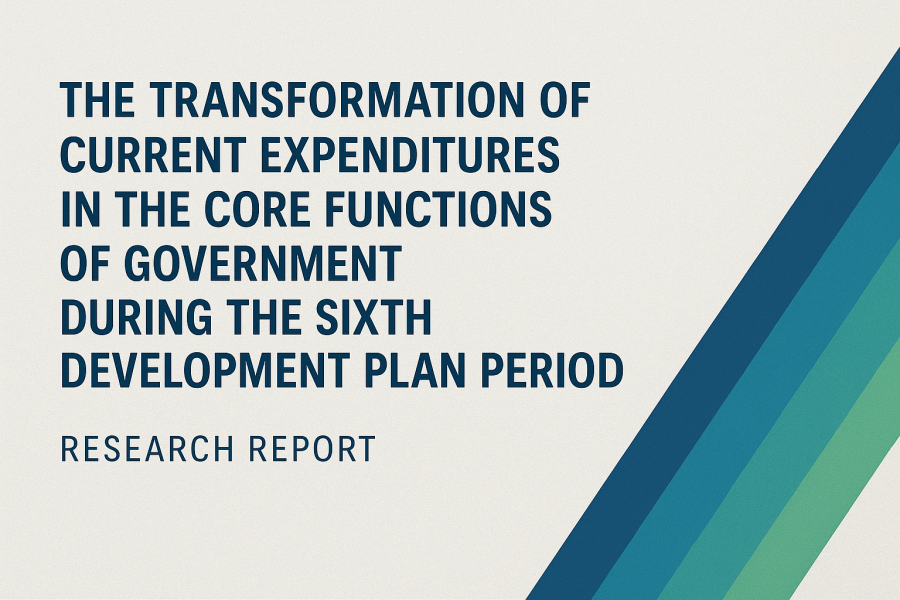
The research report titled “The Transformation of Current Expenditures in the Core Functions of Government during the Sixth Development Plan Period” was published.
According to the Public Relations Office of the Center for Development Research and Foresight (CDRF), the Research Group on Modern Planning, Budgeting, and Modeling Systems has published its latest research report entitled “The Transformation of Current Expenditures in the Core Functions of Government during the Sixth Development Plan Period.” The executive summary of this research report states: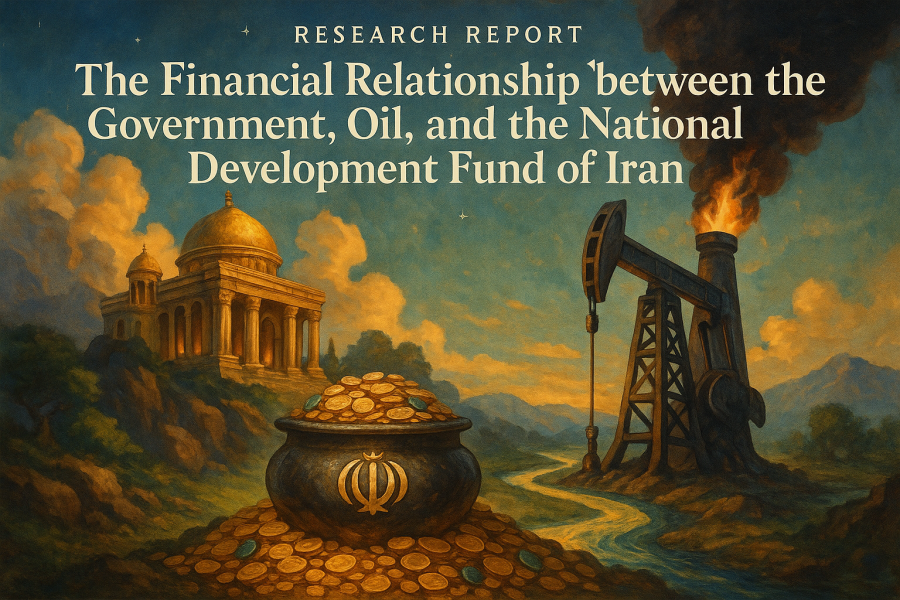
The research report titled “The Financial Relationship between the Government, Oil, and the National Development Fund of Iran” was published.
According to the Public Relations Office of the Center for Development Research and Foresight (CDRF), the Research Group on Modern Planning, Budgeting, and Modeling Systems has published a research report entitled “The Financial Relationship between the Government, Oil, and the National Development Fund of Iran.” This report is the outcome of expert discussions held within the Expert Working Group on Macroeconomics and Sustainable Development, conducted as part of the series of events of the First National Conference on Improving the Budgeting Process in Iran. The executive summary of this research report states: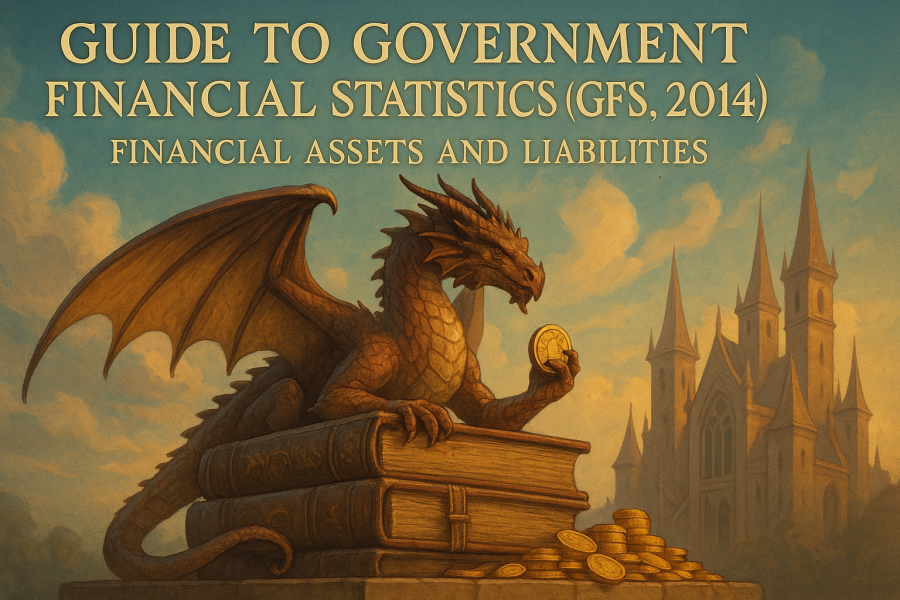
The research report titled “Guide to Government Financial Statistics (GFS, 2014): Financial Assets and Liabilities” was published.
According to the Public Relations Office of the Center for Development Research and Foresight (CDRF), the research report entitled “Guide to Government Financial Statistics (GFS, 2014): Financial Assets and Liabilities” has been published by the Research Group on Modern Planning, Budgeting, and Modeling Systems of the CDRF. A part of the introduction to this research report states: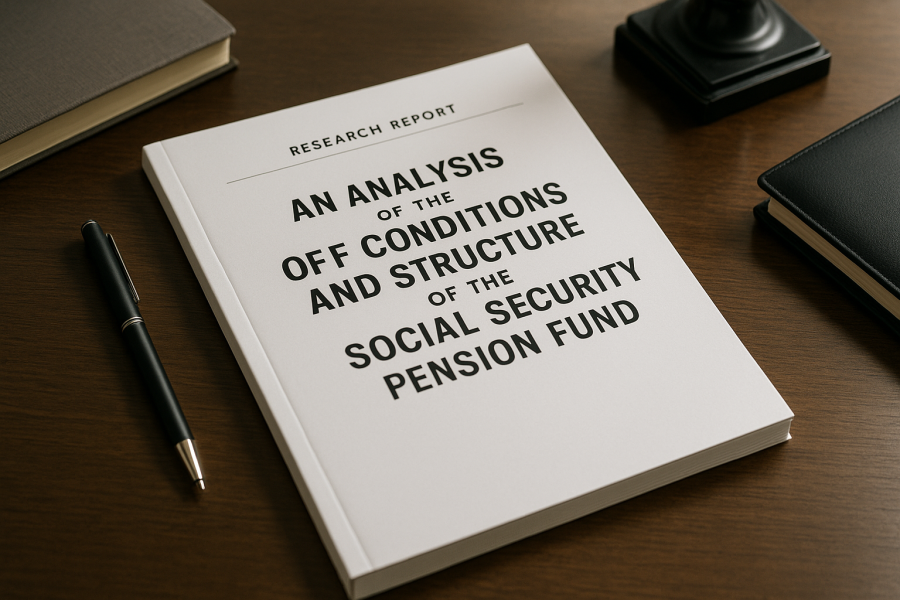
The research report titled “An Analysis of the Conditions and Structure of the Social Security Pension Fund” was published.
According to the Public Relations Office of the Center for Development Research and Foresight (CDRF), the latest research report of the CDRF entitled “An Analysis of the Conditions and Structure of the Social Security Pension Fund,” has been published by the Research Group on Modern Planning, Budgeting, and Modeling Systems, in collaboration with the Expert Task Force on enhancing smart, technological, and people-centered oversight, as part of the First National Conference on Improving the Budgeting Process in Iran. The executive summary of the report states: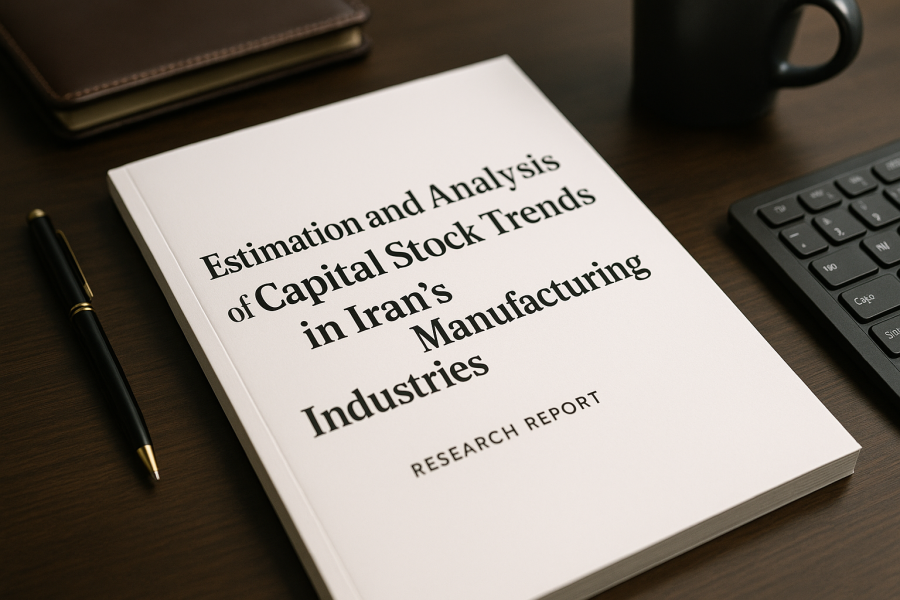
The research report titled “Estimation and Analysis of Capital Stock Trends in Iran’s Manufacturing Industries” was published.
According to the Public Relations Office of the Center for Development Research and Foresight (CDRF), the Research Group on Modern Planning, Budgeting, and Modeling Systems of the CDRF has published a research report entitled “Estimation and Analysis of Capital Stock Trends in Iran’s Manufacturing Industries.” A part of the introduction to this research report states: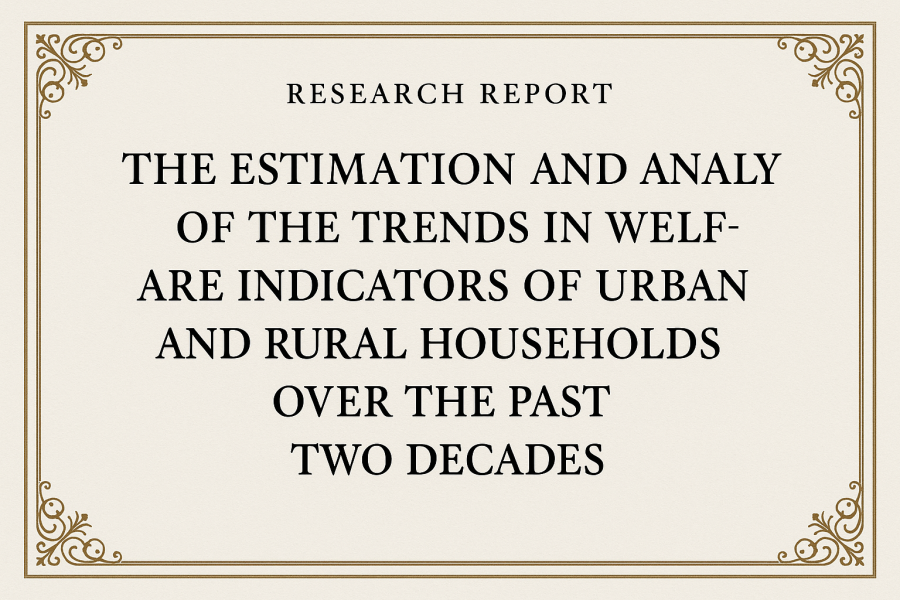
The research report titled “The Estimation and Analysis of the Trends in Welfare Indicators of Urban and Rural Households Over the Past Two Decades” was published.
According to the Public Relations Office of the Center for Development Research and Foresight (CGRF), the Research Group on Modern Planning, Budgeting, and Modeling Systems has published its latest research report entitled “The Estimation and Analysis of the Trends in Welfare Indicators of Urban and Rural Households Over the Past Two Decades.” A part of the executive summary of this research report states: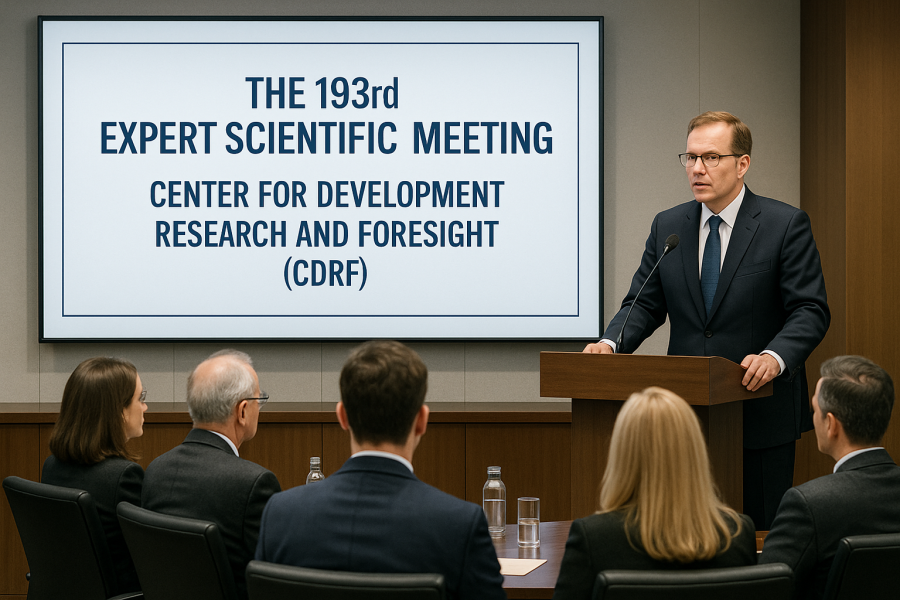
The 193rd Expert Scientific Meeting of the Center for Development Research and Foresight (CDRF) was held.
According to the Public Relations Office of the CDRF, the fourth session of the “Future Vision of the Islamic Republic of Iran” series and the 193rd expert scientific meeting of the CDRF was held under the title “Foresight Methodologies for Formulating the National Vision of the Islamic Republic of Iran”.
امروز : سه شنبه، ۲۸ بهمن ۱۴۰۴

